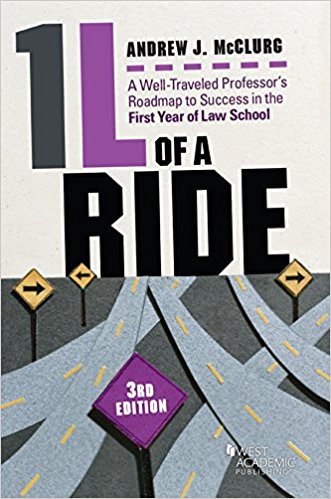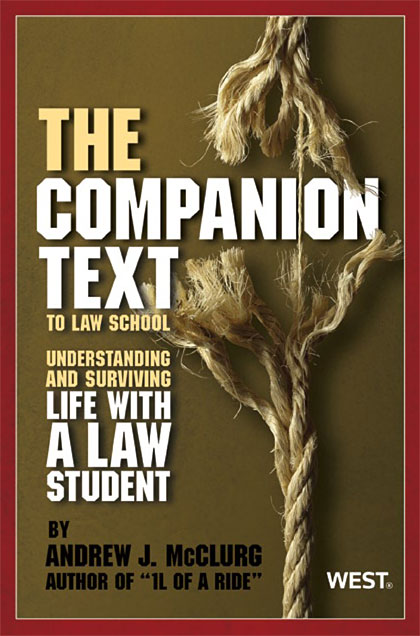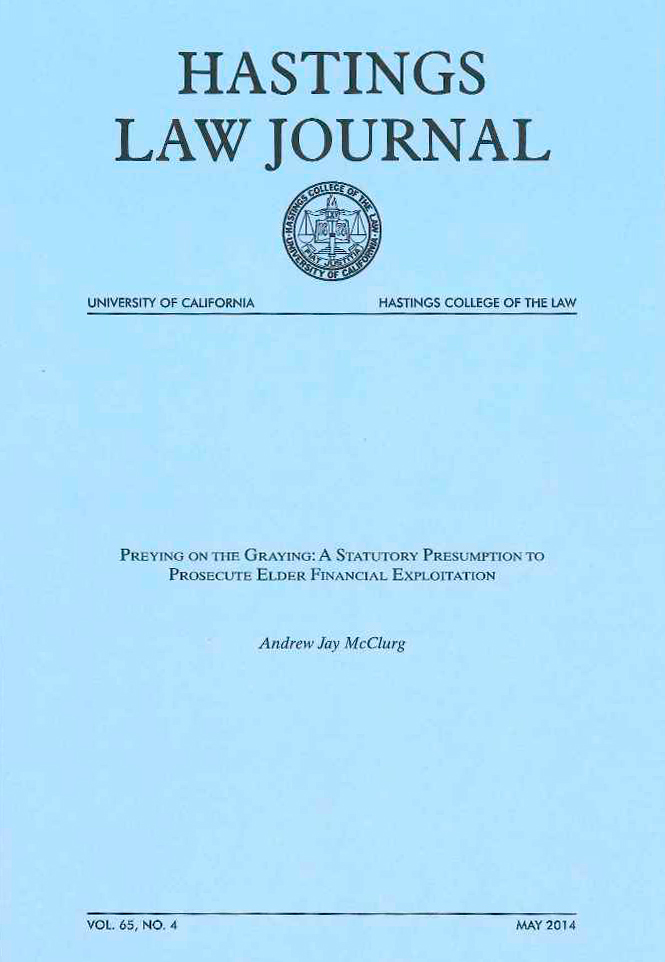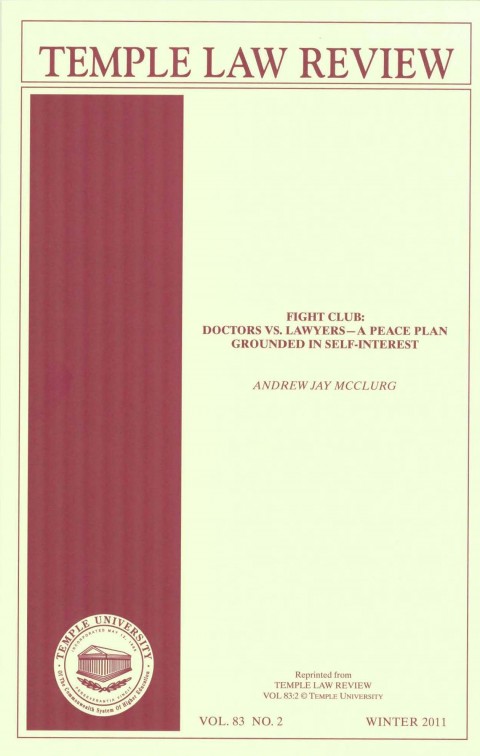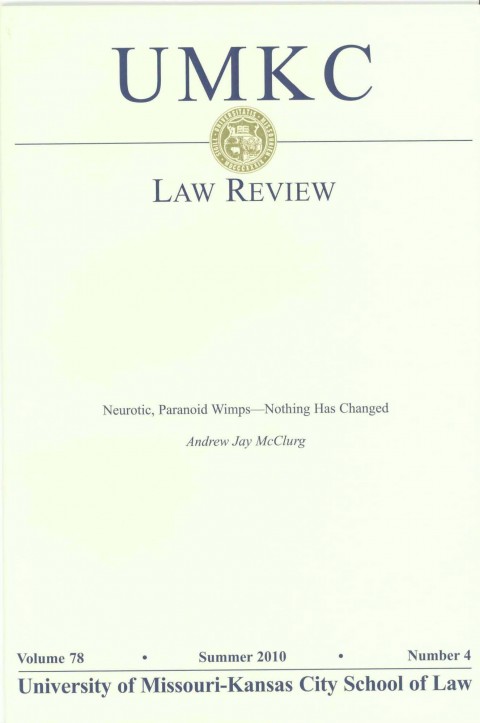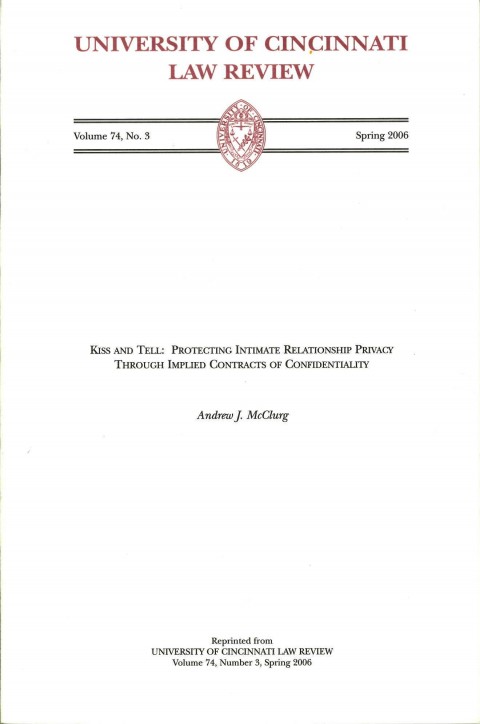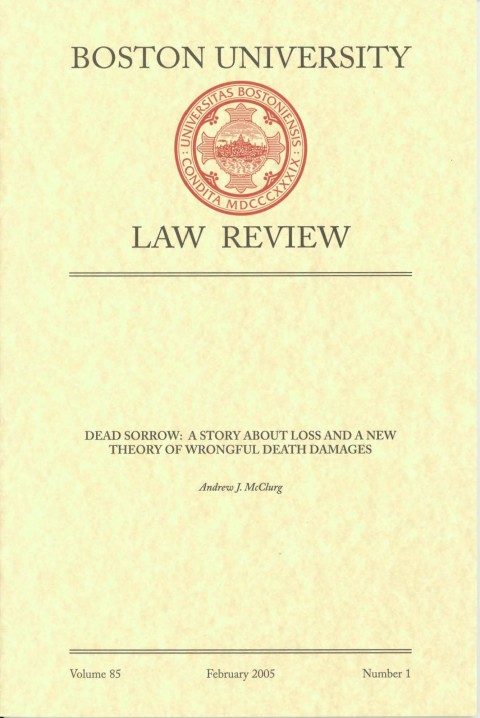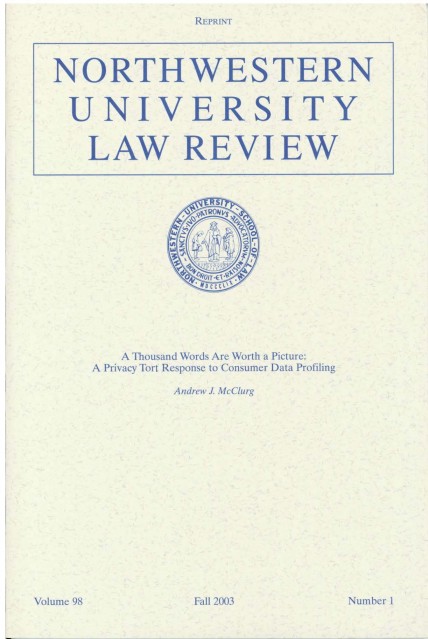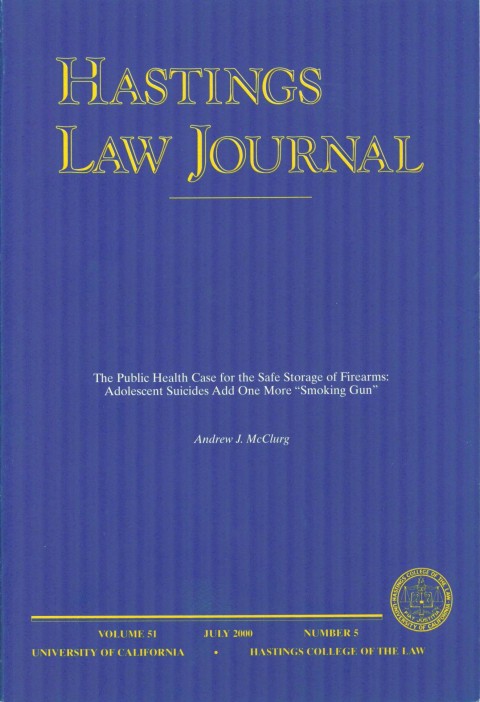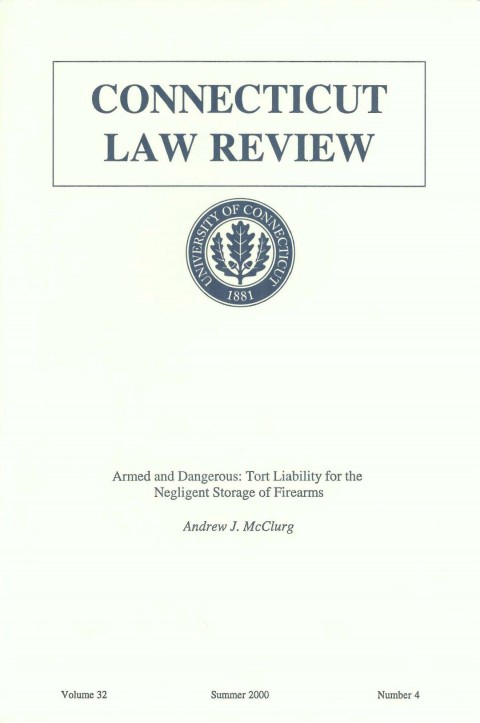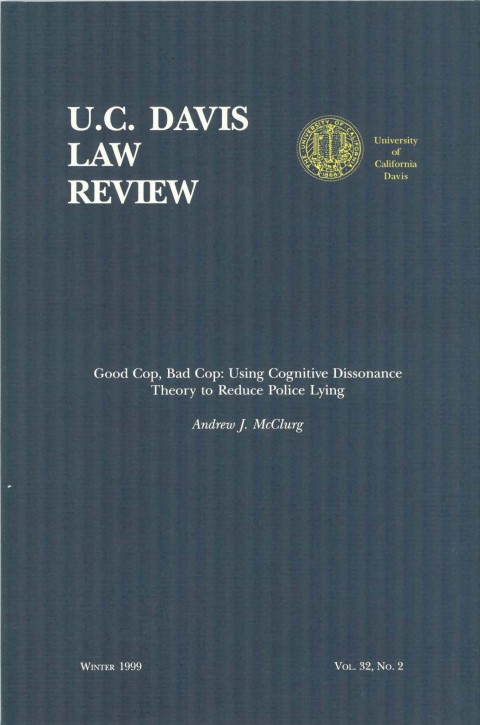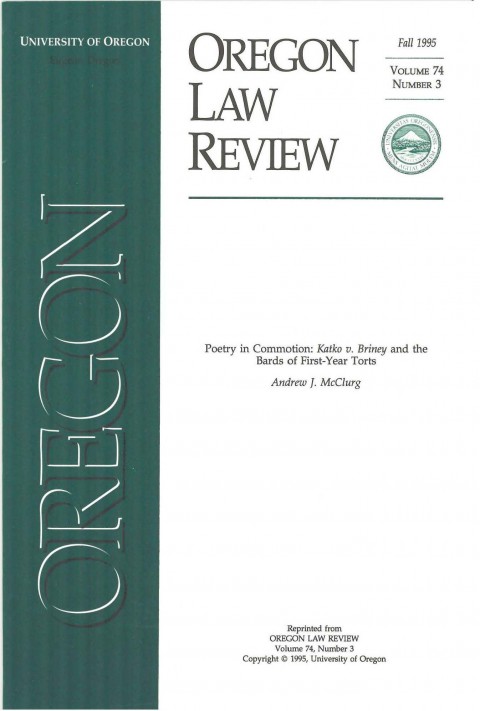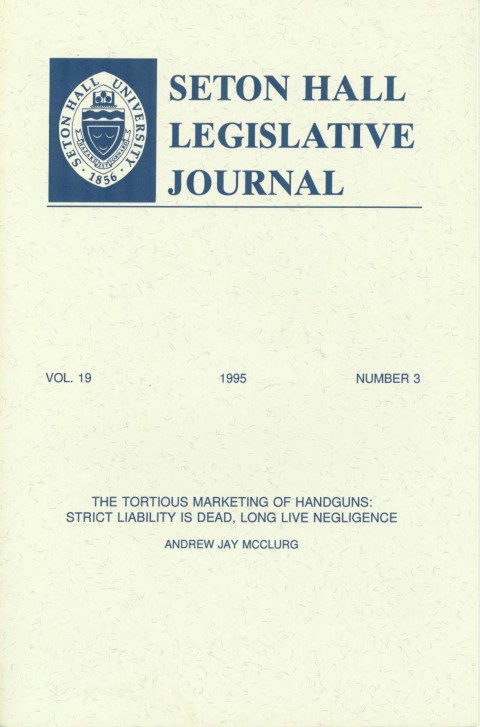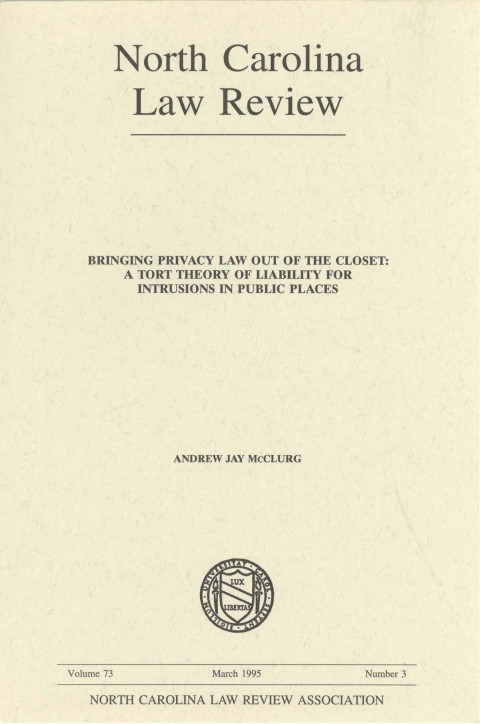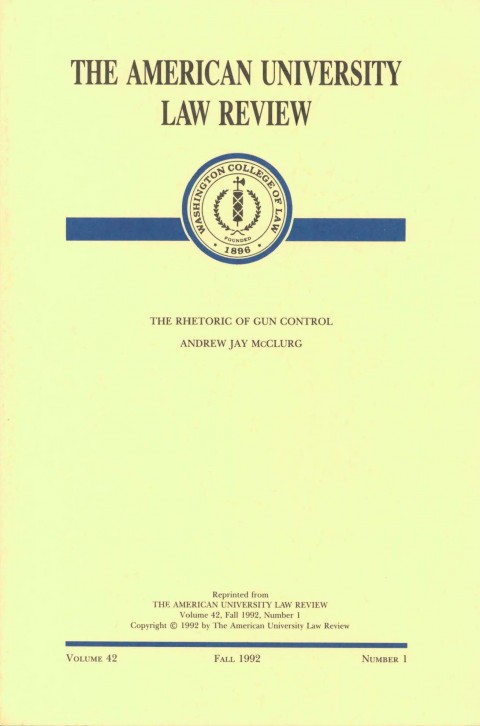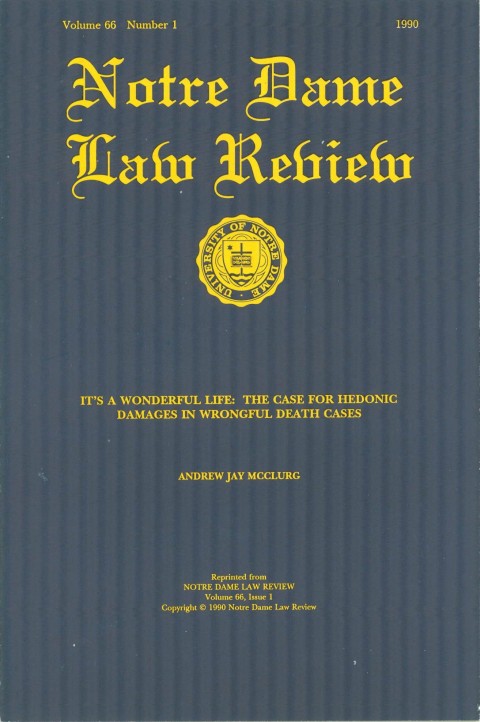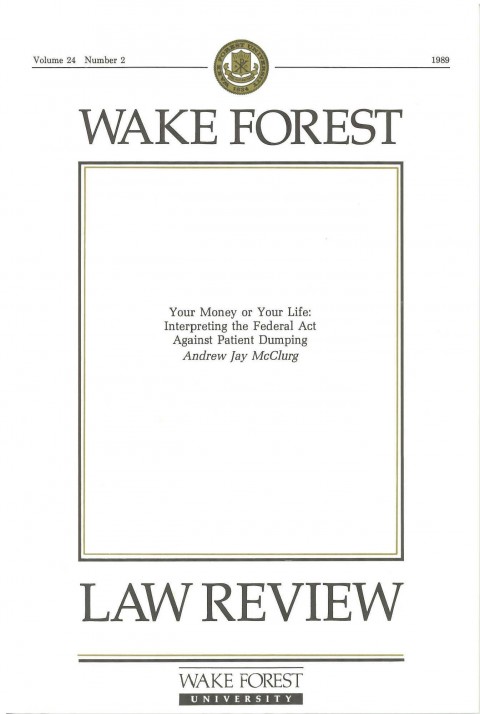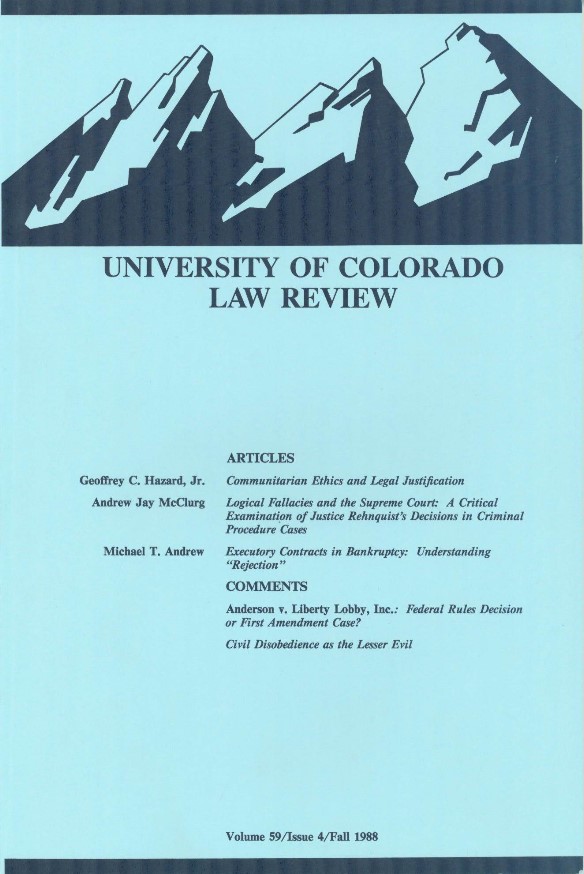November 14th, 2011 In a classic slip and fall case, plaintiff Joseph Rosenberg slipped on asparagus while dancing at a wedding reception with his sister-in-law and fellow plaintiff, Ruth Schwartz.
The issue was whether the defendant caterer had negligently spilled the asparagus on the dance floor. The trial judge had dismissed the lawsuit on theory that the offending asparagus could have been unwittingly transported onto the dance floor after becoming entrapped in the apparel of the dancers.
As with many of the judicial opinions posted on Lawhaha.com, brief excerpts don’t do this case justice. My favorite part is how the legendary Justice Michael Angelo Musmanno of the Pennsylvania Supreme Court bluntly and rather contemptuously rejected the trial judge’s theory of how the asparagus (which according to testimony formed a puddle three feet in diameter) got on the dance floor (some paragraph breaks inserted):
The trial judge, an ex-veteran congressman and thus a habitue of formal parties and accordingly an expert in proper wearing apparel at such functions, all of which he announced from the bench, allowed testimony as to the raiment worn by the banquetters.
All the men were attired in tuxedos, the pants of which were not mounted with cuffs which could transport asparagus and sauce to the dance floor, unwittingly to lubricate its polished surface. Ruling out the cuffs of the tuxedo pants as transporters of the asparagus, the judge suggested the asparagus, with its accompanying sauce, could have been conveyed to the dance floor by ‘women’s apparel, on men’s coats or sleeves, or by a guest as he table hopped.’
The Judge’s conclusions are as far-fetched as going to Holland for hollandaise sauce. There was no evidence in the case that anybody table hopped; it is absurd to assume that a man’s coat or sleeve could scoop up enough asparagus and sauce to inundate a dance floor to the extent of a three-foot circumference; and it is bizarre to conjecture that a woman’s dress without pockets and without excessive material could latch on to such a quantity of asparagus, carry it 20 feet (the distance from the tables to the dance floor) and still have enough dangling to her habiliments to cover the floor to such a depth as to fell a 185 pound gentleman with 35 years’ dancing experience who had never before been tackled or grounded while shuffling the light fantastic.
…
It can be stated as an incontrovertible legal proposition that anyone attending a dinner dance has the inalienable right to expect that, if asparagus is to be served, it will be served on the dinner table and not on the dance floor.
…
Judgment reversed with a procedendo.
Chief Justice Bell dissented:
One cannot help wondering if plaintiffs had, in the alleged 35 years of dancing, ever been to any dance, let alone a wedding banquet dance. … A dancer cannot, with legal sanction, look only into the captivating eyes of his lovely partner.
I certainly dissent.
— Schwartz v. Warwick-Philadelphia Corp., 226 A.2d 484, 485–87, 488 (Pa. 1967). Thanks to Janet Heydt.
November 14th, 2011 The classic dilemma of the law. Which is more important: following the rules or dispensing justice? Being faithful to precedent or willing to bend technical legal rules to reach the correct result?
We struggle with these issues from the time we’re first-year law students. Rules won out in ugly fashion in In re Estate of Pavlinko.
Vasil Pavlinko and his wife, Hellen, immigrants who spoke little English, went to a lawyer to have separate wills drawn up. Both wills left their residual interest to the same person: Elias Martin, the brother of Hellen Pavlinko. Unfortunately, when it came time to sign the wills, the wills got mixed up and Vasil and Hellen each signed the other’s will.
After the couple died, Elias Martin—the sole residuary legatee under both wills—offered Vasil’s will for probate. Although conceding that the result was “unfortunate,” the Pennsylvania Supreme Court rejected Martin’s petition because Vasil had mistakenly signed Hellen’s will.
Judge Michael Angelo Musmanno, a Strange Judicial Opinions Hall of Famer for his intelligent prose, dissented, in an impassioned Ode to Screwing Up:
Everyone in this case admits that a mistake was made: an honest, innocent, unambiguous, simple mistake, the innocent, drowsy mistake of a man who sleeps all day and, on awakening, accepts the sunset for the dawn.
Nothing is more common to mankind than mistakes. Volumes, even libraries have been written on mistakes: Mistakes of law and mistakes of fact. In every phase of life, mistakes occur and there are but few people who will not attempt to lend a helping hand to the person who mistakes a step for a landing and falls, or the one who mistakes a nut for a grape and chokes, or the one who steps through a glass so clear that he does not see it. This Court, however, says that it can do nothing for the victim of the mistake in this case, a mistake which was caused through no fault of his own, nor of his intended benefactors.
… I know that the law is founded on precedent and in many ways we are bound by the dead hand of the past. But even with obeisance to precedent, I still do not believe that the medicine of the law is incapable of curing the simple ailment here ….
We have said more times than there are tombstones in the cemetery where the Pavlinkos lie buried, that the primary rule to be followed in the interpretation of a will is to ascertain the intention of the testator. Can anyone go to the graves of the Pavlinkos and say that we do not know what they meant? They said in English and Carpathian that they wanted their property to go to Elias Martin.
— In re Estate of Pavlinko, 148 A. 2d 528, 532 (Pa. 1959) (Musmanno, J., dissenting). Thanks to Frank Zotter.
November 14th, 2011 Anyone who appreciates great judicial opinion-writing loves Pennsylvania Supreme Court Justice Michael Musmanno, but his rant over Henry Miller’s classic novel, The Tropic of Cancer, in Commonwealth v. Rubin, was not one of his better outings.
Miller penned The Tropic of Cancer, widely hailed as one of the great novels of the 20th century, in 1934. Published in the U.S. in 1961, the book, which contains several frank sexual passages, became the focus of a number of obscenity trials.
Commonwealth v. Rubin was an action to restrain the selling of the book. The trial court granted an injunction, which a majority of the Pa. Sup. Ct. overturned on First Amendment grounds. Musmanno dissented, unleashing a flood of hyperbole for which there may be no rival in judicial opinion writing. He didn’t just think the book was obscene. He hated it. Here are some choice passages, courtesy of Lisa Lin:
‘Cancer’ is not a book. It is a cesspool, an open sewer, a pit of putrefaction, a slimy gathering of all that is rotten in the debris of human depravity. And in the center of all this waste and stench, besmearing himself with its foulest defilement, splashes, leaps, cavorts and wallows a bifurcated specimen that responds to the name of Henry Miller. One wonders how the human species could have produced so lecherous, blasphemous, disgusting and amoral a human being as Henry Miller. One wonders why he is received in polite society.
…
Policemen, hunters, constables and foresters could easily and quickly kill a thousand rattlesnakes but the lice, lizards, maggots and gangrenous roaches scurrying out from beneath the covers of ‘The Tropic of Cancer’ will enter into the playground, the study desks, the cloistered confines of children and immature minds to eat away moral resistance and wreak damage and harm which may blight countless lives for years and decades to come.
…
To say that ‘Cancer’ has no social importance is like saying that a gorilla at a lawn party picnic does not contribute to the happiness of the occasion.
…
The defendant would have reason to say that ‘Cancer’ is not hard-core pornography; it is, in fact, Rotten-core pornography. No decomposed apple falling apart because of its rotten core could be more nauseating as an edible than ‘Cancer’ is sickening as food for the ordinary mind. ‘Cancer’ is dirt for dirt’s sake, or, more appropriately, as Justice Frankfurter put it, dirt for money’s sake.
…
Then the defendants say that ‘Cancer’ is entitled to immunity under the First Amendment because court decisions have declared that only worthless trash may be proscribed as obscene. To say that ‘Cancer’ is worthless trash is to pay it a compliment. ‘Cancer’ is the sweepings of the Augean stables, the stagnant bilge of the slimiest mudscow, the putrescent corruption of the most noisome dump pile, the dreggiest filth in the deepest morass of putrefaction.
Youch.
— Commonwealth v. Robin, 218 A.2d 546, 557, 547, 550, 552 (Pa. 1966) (Musmanno, J., dissenting). Thanks to Lisa Lin.
November 14th, 2011 In 1920, a New Jersey chancery judge was faced with a wife’s suit for marriage annulment on the ground of the husband’s alleged impotency during their five years together. The husband “vigorously protested his virility, but admitted the nonconsummation of the marriage.” The husband asserted he refrained from intercourse with his wife because he did not want to hurt her.
Interestingly, given the date, the judge thoughtfully considered whether the husband’s condition was psychological, especially since he had “submitted to an examination by one of his wife’s physicians, who testified that he was structurally a male, normal in the parts, and to all appearances capable of coition.”
The judge forged new legal ground in the U.S. by adopting from the English common law a rebuttable presumption of impotency after three years of marriage without sexual intercourse. In finding that the husband failed to overcome the presumption, the judge explained:
[T]he question comes to one of belief in his story of forbearance for five years, under most trying circumstances, simply because sexual intercourse was painful and distressing to her. I have misgivings. Such solicitude of a groom is noble, of a husband, heroic. Few have the fortitude to resist the temptations of the honeymoon. But human endurance has its limitations. When nature demands its due, youth is prodigal in the payment. Men are still cave men in the pleasures of the bed. The sex may be more temperate, but none the less passionate, and heedless of the penalty. They do not shirk the initiation nor shrink from the consequences. The husband’s plea does not inspire confidence. Common experience discredits it.
— Tompkins v. Tompkins, 111 A. 599, 601 (N.J. Ch. 1920). Thanks to Senior Judge Jim Barlow.
November 14th, 2011  The Kinks got it right in their song, “Destroyer,” when they sang that paranoia will destroy ya. The Kinks got it right in their song, “Destroyer,” when they sang that paranoia will destroy ya.
It certainly did so for the defendant in a case where, after getting paranoid at a 1999 Phish concert in Oswega, NY, presumably while under the influence of an hallucinogenic drug, he became convinced the police were following him and that the band was sending him messages through the music. Fleeing the concert, he traveled 250 miles on foot and by hitch-hiking, convinced the police were after him the whole way. (He believed that every car with an “A” in the license number contained police officers.)
Some thirty-six hours later, he finally turned up at the police barracks in Westport, NY, where he told an investigator, “You know who I am.” When the cops didn’t know who he was or why he was there, he told them he was growing marijuana plants back at his home in Rochester, NH. He then consented to a search of the house.
When the cops in Rochester searched the house, they found marijuana plants and liquid acid. Though a New Hampshire Superior Court ultimately ruled that the evidence should be suppressed (because of insufficient proof the defendant received and waived his Miranda rights), the University of Memphis law student who sent me this opinion correctly opined that it should serve as “a gentle reminder to any students planning to reunite with Phish over the summer break.”
— State v. Augur, Case Nos. 01-S-388, 01-S-389, 2001 N.H. Super. LEXIS 17 (N.H. Super. Ct., Oct. 22, 2001). Thanks to Adam Ragan.
November 14th, 2011 In Brown v. State, Judge Randall Evans, Jr. not only wrote one of the earliest in the long line of rhyming judicial opinions, he did it for a good reason. As he explained in a footnote:
This opinion is placed in rhyme because approximately one year ago, in Savannah at a very convivial celebration, the distinguished Judge Dunbar Harrison … arose and addressed those assembled, and demanded that if [I] ever again was so presumptuous as to reverse one of his decisions, that the opinion be written in poetry.
This back story puts the opinion a cut above the usual rhyming opinion. You gotta love a judge who takes on such a challenge from a colleague after a couple of drinks (I assume that’s what “a very convivial celebration” means) and honors it.
To his further credit, Justice Evans conceded he is “not a poet, and the language used, at best, is mere doggerel” and also insisted that it’s really hard to write a rhyming judicial opinion. Here’s a taste of the opinion (several verses omitted, but I tried to keep the general thread). But the funniest part is that he wrote it at all. He even specifically mentions Judge Harrison:
The D. A. was ready
His case was red-hot.
Defendant was present,
His witness was not.
He prayed one day’s delay
From His honor the judge.
But his plea was not granted
The Court would not budge.
So the jury was empaneled
All twelve good and true
But without his main witness
What could the twelve do?
…
‘What verdict, Mr. Foreman?’
The learned judge inquired.
‘Guilty, your honor.’
On Brown’s face—no smile.
‘Stand up’ said the judge,
Then quickly announced
‘Seven years at hard labor’
Thus his sentence pronounced.
‘This trial was not fair,‘
The defendant then sobbed.
‘With my main witness absent
I’ve simply been robbed.’
‘I want a new trial—
State has not fairly won.’
‘New trial denied,‘
Said Judge Dunbar Harrison.
…
So the case has reached us—
And now we must decide
Was the guilty verdict legal—
Or should we set it aside?
…
Was one day’s delay
Too much to expect?
Could the State refuse it
With all due respect?
…
We’ve considered this case
Through the night—
through the day.
As Judge Harrison said,
‘We must earn our poor pay.’
This case was once tried—
But should now be rehearsed
And tried one more time.
This case is reversed.
— Brown v. State, 216 S.E.2d 356 (Ga. Ct. App. 1975)
November 13th, 2011
 All the horsepower without the sharp teeth or drunk-driving convictions. Things weren’t looking good for the defendant in State v. Stagno after getting pulled over by a state trooper. With a blood alcohol level of .197 and two DUI convictions in the past ten years, he almost certainly would’ve lost his driver’s license if he’d been driving his friends to the topless bar in his car.
But thanks to a drunken bet made earlier in the evening, the defendant’s mode of transportation on this wild night out was not a car at all—it was a “fifteen-foot 1985 Air Gator airboat, powered by a 455 cubic inch Buick engine.”
Because the applicable statute allowed judges to revoke driver’s licenses only when the vehicle driven required a license, the trial court had to settle for imposing a $1,000 fine, thirty days in jail, and alcohol rehabilitation counseling.
The Alaska Court of Appeals affirmed the lower court’s ruling, agreeing that a fifteen-foot airboat is not a motor vehicle requiring a driver’s license.
— State v. Stagno, 739 P.2d 198 (Alaska Ct. App. 1987)
November 13th, 2011 In U.S. v. Ramirez Lopez, the defendant was convicted of smuggling aliens into the U.S. from Mexico. One died during the journey due to inclement weather. When border patrol agents interviewed fourteen members of the group, two of them said the defendant was the guide of the expedition while the other twelve exculpated him, denying he was the guide.
The government deported nine of the twelve exculpatory witnesses back to Mexico prior to trial and the trial judge denied admission of the government’s interview notes with them.
It’s fair to say Judge Kozinski was unimpressed by the fairness of the procedure. He began his dissent from the affirmance of the conviction with a satirical, fictional post-trial conversation between the defendant and his lawyer:
Lawyer: Juan, I have good news and bad news.
Ramirez-Lopez: OK, I’m ready. Give me the bad news first.
Lawyer: The bad news is that the Ninth Circuit affirmed your conviction and you’re going to spend many years in federal prison.
Ramirez-Lopez: Oh, man, that’s terrible. I’m so disappointed. But you said there’s good news too, right?
Lawyer: Yes, excellent news! I’m very excited.
Ramirez-Lopez: OK, I’m ready for some good news, let me have it.
Lawyer: Well, here it goes: You’ll be happy to know that you had a perfect trial. They got you fair and square!
[Colloquy continues in which the defendant questions the fairness of the trial and the judge explains the harmless error rule as “No harm, no foul.” The defendant takes issue with the “no harm” part, pointing out he had twelve witnesses who said he wasn’t the guide, but the government sent nine of them back to Mexico. The lawyer assures him the government talked to all of them and took good notes about what each one said.]
Ramirez-Lopez: No kidding, man. They did all that for me?
Lawyer: They sure did. Is this a great country or what?
Ramirez-Lopez: OK, I see it now, but there’s one thing that still confuses me.
Lawyer: What’s that, Juan?
Ramirez-Lopez: You see, the government took all those great notes to help me, just so we’d know what all those guys said.
Lawyer: Right, I saw them, and they were very good notes. Clear, specific, detailed. Good grammar and syntax. All told, I’d say those were some great notes.
Ramirez-Lopez: And twelve of those guys all said I wasn’t the guide.
Lawyer: Absolutely! Our government never hides the ball. The government of Iraq or Afghanistan or one of those places might do this, but not ours. If twelve guys said you weren’t the guide, everybody knows about it.
Ramirez-Lopez: Except the jury. I was there at the trial, and I remember the jury never saw the notes. And the officers who testified never told the jury that twelve of the fourteen guys that were with me said I wasn’t the guide.
Lawyer: Right.
Ramirez-Lopez: Isn’t the jury supposed to have all the facts?
Lawyer: Not all the facts. Some facts are cumulative, others are hearsay. Some facts are both cumulative and hearsay.
Ramirez-Lopez: Can you say that in plain English?
Lawyer: No.
Ramirez-Lopez: The jury was supposed to decide whether I was the guide or not, right? Don’t you think they might have had a reasonable doubt if they’d heard that twelve of the fourteen guys in my party said it wasn’t me?
Lawyer: He-he-he! You’d think that only if you didn’t go to law school. Lawyers and judges know better. It makes no difference at all to the jury whether one witness says it or a dozen witnesses say it. In fact, if you put on too many witnesses, they might get mad at you and send you to prison just for wasting their time. So the government did you a big favor by removing those nine witnesses before they could screw up your case.
Ramirez-Lopez: I see what you mean. But how about the notes? Surely the jury would have gotten a different picture if they had just seen the notes of nine guys saying I wasn’t the guide. That wouldn’t have taken too long.
Lawyer: Wrong again, Juan! Those notes were hearsay and in this country we don’t admit hearsay.
Ramirez-Lopez: How come?
Lawyer: The guys writing down what the witnesses said could have made a mistake.
Ramirez-Lopez: You mean, like maybe one of those twelve guys said, “Juan was the guide,” and the guy from Immigration made a mistake and wrote down, “Juan was not the guide”?
Lawyer: Exactly.
Ramirez-Lopez: You’re right again, it probably happened just that way. I bet those guys from Immigration wrote down, “Juan wasn’t the guide,” even when the witnesses said loud and clear I was the guide-just to be extra fair to me.
Lawyer: Absolutely, that’s the kind of guys they are.
Ramirez-Lopez: You’re very lucky to be working with guys like that.
Lawyer: Amen to that. I thank my lucky stars every Sunday in church.
Ramirez-Lopez: I feel a lot better now that you’ve explained it to me. This is really a pretty good system you have here. What do you call it?
Lawyer: Due process. We’re very proud of it.
This is the kind of intelligent humor–using humor or satire as a rhetorical device to make a point–that Lawhaha.com values, and a reason Judge K is in the Strange Judicial Opinions Hall of Fame.
— United States v. Ramirez Lopez, 315 F.3d 1143, 1159–62 (9th Cir. 2003) (Kozinski, J., dissenting). Thanks to Steven Druckenmiller.
November 13th, 2011 It’s actually pretty hard to get disbarred as a lawyer, as opposed to reprimanded or suspended, maybe harder than it should be. But with enough effort, it can be done, as shown in a 2010 case where the Kansas Supreme Court disbarred a lawyer after what it called repeated episodes “of rude, disruptive, and at times criminal, misconduct.”
According to the court’s findings (the lawyer disputed the facts), these incidents included:
1. Yelling at a court clerk to tell a prosecutor “to get his ‘ass’ in the courtroom,” telling the clerk he was smarter than anyone in the clerk’s office, and telling all the clerks present that they were “f****** b******.”
2. Getting in a physical altercation with a Deputy Marshal at the federal courthouse after he refused to obey commands to return to the security entrance after setting off the magnetometer, for which the lawyer was subsequently indicted and convicted.
3. Repeatedly talking loudly and abusively to the judge in a Missouri case, saying, among other things: “that the proceeding was a ‘joke’ and a ‘travesty’”; accusing the judge of “apparent reckless, bias, [and] prejudice”; telling the judge that the “proceeding was a joke”; accusing the court of “corrupting and stinking up the case” and “corrupting the system”; accusing the court of “being anything but impartial, justiciable, and anything but incompetent”; wadding up a copy of a pleading filed by opposing counsel, throwing it to the floor, and grinding it into the floor with his shoe; and stating to the court that “you’re going to sit up there with the audacity and the smugness of your holiness.” For these acts, he was held in contempt of court.
4. Changing a previously agreed on fee agreement from a $3,500 flat fee to an hourly rate of $3,500.
5. Getting into an argument with a court bailiff in another case, as a result of which he was held in contempt of court. Among other conduct, he accused the court of being a “kangaroo court” and said that “all you guys in Grandview [Missouri] are all snakes, that’s all you all are.” The bailiff reported that during this fracas, the lawyer’s client was overheard saying “That’s my attorney and I don’t want to have anything to do with him.”
— In re Romious, 240 P.3d 945, 947 (Kan. 2010). Thanks to Doug Cressler.
November 10th, 2011 A dispute over the quality of a breakfast sausage at a Denny’s restaurant adds to the burgeoning inventory of rhyming judicial opinions. The ridiculous disagreement that gave rise to the case is more amusing than the prose.Dissatisfied with the quality of some breakfast sausage, the appellant and his companion sent the sausage back to the kitchen. When the bill arrived, appellant demanded that it be reduced by the ala carte price for the sausage ($3.20), but the Denny’s assistant manager, obviously destined for full manager status, agreed to deduct only $1.20.
Appellant balked, left four bucks and departed, and thus arose the Great Two-Dollar Theft Case. Denny’s had the appellant arrested for theft. After the charge was dismissed, appellant filed a civil action for malicious prosecution, which also was dismissed.
On appeal, Judge Cercone of the Pennsylvania Superior Court, in obvious frustration over having to expend scarce judicial resources over two bucks, was moved to wax poetic:
Sausage and eggs!
Sausage and eggs!
$2.02 he refused to pay
So now in court it’s for us to say.
Sausage and eggs!
It wasn’t the price
The parties contend
It’s the principle, they pretend.
Sausage and eggs! $2.02 involved.
A sum so easily resolved
But no give or take here
They insist on a legal atmosphere.
Oh, in Uncle Sam’s land
Any person in court may protest
But, dear Lord, the Judge says
From this test, please give me rest.
He concluded his opinion with the statement: “Preserve us from more of this!” We concur. Maybe judges should be required to attend poetry writing classes before being sworn in.
— Amicone v. Shoaf, 620 A.2d 1222, 1223 (Pa. Super. Ct. 1993). Thanks to Melanie Ware.
November 7th, 2011 Should judges rhyme? A recent offering by Justice Michael Eakin (Pa. Sup. Ct.), one of the better rhyming judges, is submitted for your expert poetic analysis, preferably with reference to the late romantic period of Shelly, Byron and Keats.
Sung to the tune of the theme song from “Mr. Ed,” the television sitcom about the talking horse, here is part of Justice Eakin’s rhyming dissent from a ruling that the state’s drunk driving law does not apply to people on horses:
A horse is a horse, of course, of course,
but the Vehicle Code does not divorce
its application from, perforce,
a steed, as my colleagues said.
“It’s not vague” I’ll say until I’m hoarse,
and whether a car, a truck or horse
this law applies with equal force,
and I’d reverse instead.
To which we can add, with all due respect to Justice Eakin:
Justice Eakin, we love you, man,
for trying to do whatever you can
to spice up the lives of bar and bench.
But although it’s a dicey subject to broach,
could you please consider another approach?
‘Cause that latest rhyme gives off a bit of a stench.
Just kidding around, Justice Eakin. We love ya. Other Justice Eakin rhymes can be found here.
— Commonwealth v. Noel, 857 A.2d 1283, 1291 (Pa. 2004) (Eakin, J., dissenting). Thanks to Kelly Jordan.
November 7th, 2011  Maybe he really is Santa Claus. Warren J. Hays continued to brew trouble with that official Ohio identification card issued to him in the name of Santa Claus, listing his address as 1 Noel Drive, showing his birth date as December 25, 1900, and bearing a picture of him in a false beard.
“Santa Claus Is Coming to Court” recalls part one of the drama.
After being involved in a minor accident in his car, “which resembled a sleigh,” Hays presented his Santa Claus ID to the other party, who showed it to a police officer-friend of hers. The officer, suspecting that Hays might not really be Santa Claus, met with the prosecutor, who filed a misdemeanor complaint against Hays alleging that he provided false information in obtaining an the Ohio ID card.
The instant action was Hays’ suit for malicious prosecution and abuse of process, which he lost.
The burning question remains: How does a man claiming to be Santa Claus obtain an official state ID card? On the other hand, maybe he really is Santa Claus, in which case the state should quit hassling him so he can get ready for the holidays.
— Hays v. Merkel, Case No. 2003-T-0082, 2004 Ohio App. LEXIS 4476 (Ohio Ct. App. 2004). Thanks to Matt Vansuch.
November 7th, 2011 Think judges of the U.S. Tax Court are staid? Well, yes, probably. But in 1983, one of them cut loose with a rhyming opinion in a case involving country singer Conway Twitty’s defunct “Twitty Burger” restaurants:
Twitty Burger went belly up
But Conway remained true
He repaid his investors, one and all
It was the moral thing to do.
His fans would not have liked it
It could have hurt his fame
Had any investors sued him
Like Merle Haggard or Sonny James.
When it was time to file taxes
Conway thought what he would do
Was deduct those payments as a business expense
Under section one-sixty-two.
In order to allow these deductions
Goes the argument of the Commissioner
The payments must be ordinary and necessary
To a business of the petitioner.
Had Conway not repaid the investors
His career would have been under cloud,
Under the unique facts of this case
Held: The deductions are allowed.
Interesting factoids in the opinion include the revelations that Conway Twitty’s real name was Harold Jenkins and that he began his career in rock and roll before crossing over to country music in 1965.
— Jenkins v. Comm’r, 47 T.C.M. (CCH) 238 (T.C. 1983). Thanks to Professor Jose Gabilondo.
November 7th, 2011  "Am looking for a good lawyer. Can pay in acorns. Hit me up." Appellate Judge Joseph Hudock of the Superior Court of Pennsylania treated us to a classic in a case involving a poor little persecuted squirrel named Nutkin.
For an alleged questionable motive (explained in the opinion), the state decided to prosecute Nutkin’s owner for keeping the squirrel as a family pet in violation of Pennsylvania wildlife laws. The good news is that Nutkin and the owner won. The better news is Judge Hudock’s opinion. This one is worth reading in full. Here are the opening paragraphs to give you a taste:
1. This appeal revolves around the life and times of Nutkin the squirrel.
2. Nutkin’s early life was spent in the state of nature ferrae naturae, in the state of South Carolina, and, as far as we can tell, in a state of contentment. She apparently had plenty of nuts to eat and trees to climb, and her male friends, while not particularly handsome, did have nice personalities. Life was good.
3. Then one day tragedy struck: Nutkin fell from her tree nest!
4. But fate was kind. Nutkin was found and adopted by Appellant and her husband who, at that time, were residents of South Carolina. Appellant lovingly nursed Nutkin back to health, and Nutkin became the family pet. . . . Life was good again.
5. Nutkin’s captivity and domestication were perfectly legal in South Carolina, possibly a reflection of that state’s long tradition of hospitality to all.
6. In 1994, Appellant and her husband moved to Pennsylvania and brought Nutkin with them. Life was full of promise.
7. Dark clouds began to gather, however … [when the mean old state of Pennsylvania came into the picture and tried to take Nutkin away].
. . .
9. Nutkin would then learn the shocking truth that the cheery Pennsylvania slogan “You’ve got a friend in Pennsylvania” did not apply to four-legged critters like Nutkin.
If you track down the full opinion, keep an eye out for the funny analogy Judge Hudock draws between old squirrels and old appellate judges.
— Commonwealth v. Gosselin, 861 A.2d 996, 997–98 (Pa. Super. Ct. 2004). Thanks to Ryan Kriger.
November 7th, 2011
 Judge Terence T. Evans - Lawhaha.com Hall of Fame Judge Judge Terence T. Evans, U.S. Court of Appeals for the Seventh Circuit, passed away on August 11, 2011. Here’s a nice tribute to him on the Marquette law school (where he attended law school) faculty blog.
All accounts of Judge Evans and his life mention his keen sense of humor, which certainly shined through in several his judicial opinions. He’s elected to Lawhaha.com’s Strange Judicial Opinions Hall of Fame for the way he pragmatically and cleverly wove humor, especially sports and pop culture, into his opinions, never resorting to sarcasm or belittling as means for amusement. Lawhaha.com’s entries of Evans’ opinions were written long before his death:
If ESPN ever needs a replacement for Chris Berman, here is the perfect candidate: Judge Terence T. Evans of the U.S. Court of Appeals for the Seventh Circuit.
This is a guy with such a deep love for sports that he began his opinion in Hunt’s Generator Committee v. Babcock & Wilcox Co. expressing the wistful sentiment that he would rather be getting ready to watch the World Series than writing an opinion about successor liability for a landfill cleanup. He asked forgiveness if his mind wandered a bit in the opinion.
And wander it did. Reciting the dates of the landfill’s operation sparked fond baseball memories for Judge Evans.
So what that the landfill began operating in September 1959. That date has much more important baseball significance, as Judge Evans explained in this footnote:
FN1. September of 1959 was an exciting time. The San Francisco Giants–who blew off Manhattan’s Polo Grounds after the 1957 season–were leading the Dodgers and the Braves (Milwaukee, not Atlanta) by two games with eight to go in the race for the National League Pennant. But the Giants were playing in old Seals Stadium (a minor league park), a place not suited for World Series play. If they made it to the Series, they thought, they might want to play in the yet unfinished Candlestick Park. They were in a pickle–which way would they go? Fortunately, their old friends, the Dodgers (who, like the Giants, had broken hearts the year before by running away from Ebbets Field) came to the rescue. The Dodgers beat the Giants three straight times over the weekend of September 19-20, sending the Giants reeling into third place. There would be no need to choose between Candlestick Park and Seals Stadium. …
Another party operated the landfill until September 1970, but again, Judge Evans was distracted by the date’s importance to the national pastime:
FN2. In September of 1970, the Milwaukee Brewers were drawing the curtain on their maiden campaign in Milwaukee. Despite the fact that they finished 65-97, 33 games out of the race, baseball was back in town and Milwaukee fans were loving it.
Other important dates included April 8, 1975, the day asset acquisition on the landfill was closed, but more significantly:
FN4. April 8, 1975, was the one-year anniversary of Henry Aaron’s historical 715th dinger which broke Babe Ruth’s lifetime record of 714.
In Olinger v. U.S. Golf Ass’n, Judge Evans demonstrated that his sports knowledge is not limited to baseball. Olinger was a suit by a disabled professional golfer seeking to be allowed to use a golf cart in the U.S. Open, in conflict with the rule that all participants must walk (the U.S. Supreme Court later decided in golfer Casey Martin’s case that the rule must give way under the ADA).
Judge Evans’ defense of the tradition that players must walk is not only impassioned, but provides enough golf factoids to fill a Trivial Pursuit game dedicated solely to golf (fitting, since the activity is one of the quintessential trivial pursuits). For example, did you know that the official “Rules of Golf” provide a two-stroke penalty for asking an opponent how far away he thinks the green is?
— Hunt’s Generator Comm. v. Babcock & Wilcox Co., 863 F. Supp. 879, 881–82 nn. 1, 2, 4 (E.D. Wis. 1994); Olinger v. U.S. Golf Ass’n, 205 F.3d 1001, 1003 (7th Cir. 2000). Thanks to Cynthia Cohan.
November 6th, 2011 Michigan Circuit Court Judge Deborah Servitto rapped part of her recent decision dismissing a defamation case brought against Eminem.
Eminem’s 1999 CD, “The Slim Shady LP,” included a song called “Brain Damage” in which Eminem accused one DeAngelo Bailey of bullying and battering him while the two were in elementary school: “Way before my baby daughter Hailey, I was harassed daily by this fat kid named DeAngelo Bailey … He banged my head against the urinal until he broke my nose, soaked my clothes in blood, grabbed me and choked my throat.”
Bailey sued for defamation, denying that he ever bullied or battered Em. Servitto dismissed the complaint on the ground that the statements in the song were mere rhetorical hyperbole, rather than statements that could be construed as stating actual facts about a person.
Thanks to several loyal lawhaha.com visitors, we now have the full text of the attempted rap for you, which is found in the last footnote of Servitto’s 14-page opinion:
11. To convey the Court’s opinion to fans of rap, the Court’s research staff has helped the Court put the decision into a universally understandable format:
Mr. Bailey complains that his rap is trash
So he’s seeking compensation in the form of cash
Bailey thinks he’s entitled to some monetary gain
Because Eminem used his name in vain
Eminem says Bailey used to throw him around
Beat him up in the john, shoved his face in the ground
Eminem contends that his rap is protected
By the rights guaranteed by the first amendment
Eminem maintains that the story is true
And that Bailey beat him black and blue
In the alternative he states that the story is phony
And a reasonable person would think it’s baloney
The Court must always balance the rights
Of a defendant and one placed in a false light
If the plaintiff presents no question of fact
To dismiss is the only acceptable act
If the language used is anything but pleasin’
It must be highly objectionable to a person of reason
Even if objectionable and causing offense
Self-help is the first line of defense
Yet when Bailey actually spoke to the press
What do you think he didn’t address?
Those false light charges that so disturbed
Prompted from Bailey not a single word.
So highly objectionable it could not be
–Bailey was happy to hear his name on a CD
Bailey also admitted he was a bully in youth
Which makes what Marshall said substantial truth
This doctrine is a defense well known
And renders Bailey’s case substantially blown
The lyrics are stories no one would take as fact
They’re an exaggeration of a childish fact
Any reasonable person could clearly see
That the lyrics could only be hyperbole
It is therefore this Court’s ultimate position
That Eminem is entitled to summary disposition
Will Bailey appeal? Judge Servitto probably would advise him to just “peace out, dawg.”
— Bailey v. Mathers, Case No. 2001-3606-NO, slip op. at 13 n. 11 (Macomb County Circuit Court, Oct. 17, 2003). Thanks to Jason Blalock, Geoff Brown, Mark Rodan, and Melanie Ware.
November 6th, 2011 The law is becoming increasingly well-settled that serious jurisdictional obstacles confront those who sue biblical beings. A suit against Satan and His Staff ran into trouble, as did this lawsuit against his opponents, filed in a federal court in Pennsylvania:
McGLYNN, District Judge.
In what purports to be a civil rights action, the only defendants identified by name are God and Jesus. The complaint simply states “Treating Inhuman Sex.” The papers were accompanied by a petition to proceed in forma pauperis and it would appear that plaintiff qualifies to do so.
Nevertheless, the complaint must be dismissed because quite apart from the question of service on the principal defendants, there is no factual basis for the exercise of this court’s subject matter jurisdiction. Fed.R.Civ.P. 12(h)(3).
— Jones v. God, Civ. A. No. 90-0742, 1991 WL 42399 (E.D. Pa. 1991, March 25, 1991). Thanks to Lihwei Lin.
November 6th, 2011 In a copyright battle between two British rap bands, an English court ruled that rap lyrics should for practical purposes be considered a “foreign language,” requiring expert testimony as to their interpretation.
British band Ant’ill Mob sued another band, Heartless Crew, alleging the defendant disparaged the band’s copyright for its 2001 hit song, “Burnin’,” by remixing the song using lyrics the plaintiff considered objectionable because they allegedly refer to drugs and violence, including the terms “shizzle my nizzle,” “mish mash man,” and “string dem up.”
Even after playing the record at half speed and consulting the Urban Dictionary, Judge Kim Lewison said he could not determine the meaning of the phrases without an expert witness.
The amusing predicament of three uppercrust, white, middle-aged judges trying to unravel rap slang was not lost on Judge Kim, who commented on the “faintly surreal experience of three gentlemen in horsehair wigs examining the meaning of such phrases.”
According to the Urban Dictionary (urbandictionary.com), “shizzle my nizzle” means:
a bastardization of “fo’ sheezy mah neezy,” a bastardization of “for sure mah n—,” a bastardization of “I concur with you wholeheartedly my African-American brother.
— Confetti Records v. Warner Music UK Ltd, [2003] EWHC 1274 (Ch). Thanks to Cynthia Cohan, Elise Hendrick, and Catherine Seville for sending this opinion. Catherine is the Director of Studies in Law at Newnham College in Cambridge and reports that Judge Lewison is “a good Cambridge man.” Indeed.
November 6th, 2011 Stressed out that you just lost a case and have weak grounds for appeal? Cheer up. It could be worse. What if your strongest argument on appeal was that your client’s name was typed in all capital letters in the trial court documents?
That was the situation in R v. Linehan, a case from the Alberta (Canada) Court of Queen’s Bench, where a defendant convicted for failing to file a tax return pinned his appellate hopes on the argument that his name should not have been spelled in all capital letters. Here are some excerpts from his argument:
1. There is no jurisdiction to tax the flesh and blood, of the lawful natural person.
2. GORDON LINEHAN in the charges is a fictional artificial person’s name.
3. GORDON LINEHAN is outside the definition of a proper noun.
4. A proper noun would spell my proper lawful name Gordon Linehan.
5. The new Oxford Dictionary of English published by the Oxford university Press, 1998, states:
Proper Noun. Noun. A name used for an individual person, place or organization spelled with an initial capital letter, e.g. Jane London.
Name Noun. Noun 1. A word or set of words by which a person, animal, place or thing is known, addressed, or referred to: my name is a Parsons, John Parson.
6. The Newbury House Dictionary of American English, published by Monroe Allen Publishers, Inc., 1999, states: “Name N. 1. (C) A word by which a person, place or thing is known. Her name is Diane Daniels.”
7. Plain English. A guide to Standard Usage and Clear Writing. Prentice – Hull Canada Inc. publishers. C. Edward Collins, and Hugh D. Reads, the authors. Both authors are from the Northern Alberta Institute of Technology, otherwise known by the acronym (NAIT). Chapter 2 states: Every noun can be classified as either a proper noun or a common noun. A proper noun names a particular person or thing. It begins with a letter. Examples are: Emily, Ford, and December, note capital letters for the first letter, lower case letter for the following. A common noun identifies a person or thing in a general way. It begins with a small letter unless it is at the beginning of a sentence. Examples are: month, car, and education.
8. I found no example in any recognized reference book that specifies or allows the use of all capitalized names, proper or common nouns.
9. The National Aeronautics and Space Administration (NASA), publication SP-7084 states at chapter 4 in the introduction 4.1 “First we should define terms used when discussing capitalization.” …
Those who lack faith in the legal system, take heart! The argument did not succeed.
— R. v. Lineham, (2000) 276 A.R. 383 (Can. Alta Q.B.). Thanks to David Cheifetz
November 6th, 2011  A man named Warren J. Hayes somehow was able to obtain an official Ohio Identification Card in the name of “Santa Claus.” He also managed to get an official motor vehicle registration, AAA membership card, and checking account in Santa’s name, all of them listing his address as 1 Noel Drive, North Pole USA. A man named Warren J. Hayes somehow was able to obtain an official Ohio Identification Card in the name of “Santa Claus.” He also managed to get an official motor vehicle registration, AAA membership card, and checking account in Santa’s name, all of them listing his address as 1 Noel Drive, North Pole USA.
Hayes/Claus ran into trouble when he was involved in a minor car accident and produced his Santa Claus ID to a cop. He was charged under an Ohio statute prohibiting the use of “fictitious” names.
Perhaps in the Christmas spirit (although the case was decided in the heat of summer), Ohio Judge Thomas P. Gysegem let Mr. Hayes/Claus off the hook with this reasoning:
[T]he court’s dilemma is whether Santa’s act of displaying this identification card under these circumstances and with this history (noted above) violated the law, to wit, Was this identification card “fictitious”?
Webster’s Seventh New Collegiate Dictionary defines “fictitious.” Its analysis of the word includes a synonym comparison with “fabulous,” “legendary,” “mythical,” and “apocryphal”:
“Fabulous stresses the marvelous or incredible character of something without distinctly implying impossibility or actual nonexistence; Legendary suggests the elaboration of invented details and distortion of historical facts produced by popular tradition; Mythical implies a purely fanciful explanation of facts or the creation of beings and events out of the imagination; Apocryphal implies an unknown or dubious source or origin for an account circulated as true or genuine. … Fictitious implies fabrication and suggests artificiality or contrivance more than deliberate falsification or deception.”
Had Santa been charged with being “fabulous, legendary, mythical or apocryphal,” he might well indeed be guilty facing up to 180 days in jail and a $1,000 fine. However, to sustain the burden of going forward, the state must make a showing that Santa knowingly displayed an identification card that was “fictitious.” This the state has not done. The fact that Santa had an ongoing relationship for 20 years with the BMV is not indicative of “artificiality or contrivance,” for, in fact, under the publicly held records of the Ohio Bureau of Motor Vehicles, Santa has been a “real person” since as early as 1982.
Never explained in the opinion is how the Ohio Bureau of Motor Vehicles allowed a person to obtain and renew official documents in the name of Santa Claus for twenty years.
— State v. Hayes, 774 N.E.2d 807, 810 (Ohio Mun. Ct. 2002). Thanks to Mardee Sherman.
November 6th, 2011  Barbie, looking effervescent despite lawsuit loss. In 1997, the Danish band “Aqua” released a parody of America’s favorite thin plastic girl, Mattel’s Barbie®, called “Barbie Girl.” Mattel sued for trademark infringement and dilution. The federal district court in California granted summary judgment against the plaintiff, ruling the song was protected parody.
The U.S. Court of Appeals for the Ninth Circuit affirmed in an opinion by Judge Alex Kozinski. Judge K opened by posing the case as an epic battle between free speech and intellectual property rights. In his words, “[i]f this were a sci-fi melodrama, it might be called Speech-Zilla meets Trademark Kong.”
In ruling against Mattel, Kozinski opined that Barbie is much more than a mere product in the American conscious. She also had a more colorful past than you might realize:
Barbie was born in Germany in the 1950s as an adult collector’s item. Over the years, Mattel transformed her from a doll that resembled a “German street walker,” as she originally appeared, into a glamorous, long-legged blonde. Barbie has been labeled both the ideal American woman and a bimbo. She has survived attacks both psychic (from feminists critical of her fictitious figure) and physical (more than 500 professional makeovers). She remains a symbol of American girlhood, a public figure who graces the aisles of toy stores throughout the country and beyond. With Barbie, Mattel created not just a toy but a cultural icon.
It’s true. Barbie is a myth, a legend, and, for better or worse, represents the dreams of little girls everywhere. My daughter used to own probably a dozen Barbies. At what point, if any, can a product image become part of the public domain because it has become woven into the fabric of culture itself?
As Kozinski said in discussing Mattel’s trademark-infringement claim:
The problem arises when trademarks transcend their identifying purpose. Some trademarks enter our public discourse and become an integral part of our vocabulary. How else do you say that something’s “the Rolls Royce of its class”? What else is a quick fix, but a Band–Aid? Does the average consumer know to ask for aspirin as “acetyl salicylic acid”? Trademarks often fill in gaps in our vocabulary and add a contemporary flavor to our expressions. Once imbued with such expressive value, the trademark becomes a word in our language and assumes a role outside the bounds of trademark law.
Don’t remember Aqua’s one-hit wonder novelty song? No worries. The court attached the lyrics as an appendix. Here’s the chorus to refresh your memory:
I’m a Barbie girl, in my Barbie world
Life in plastic, it’s fantastic
You can brush my hair, undress me everywhere
Imagination, life is your creation
Come on Barbie, let’s go party!
Here’s the Official YouTube video.
Mattel, this is more humor. Don’t sue.
— Mattel, Inc. v. MCA Records, Inc., 296 F.3d 894, 898, 909 (9th Cir. 2002).
November 6th, 2011  An alleged alien from outer space—a Martian, to be precise—was outsmarted by good old terrestial law. An alleged alien from outer space—a Martian, to be precise—was outsmarted by good old terrestial law.
The plaintiff claimed to be a Martian. He filed three lawsuits in Canada against numerous defendants, including the CIA and then-President Bill Clinton, alleging the defendants had taken various steps that interfered with his ability to live freely as a Martian. He asserted the only reason he could not prove his Martian status was because the CIA tinkered with his DNA test. (This is actually starting to sound like a good action movie plot …)
Ironically, and perhaps unfairly, the essence of the plaintiff’s claim did him in. Judge Epstein explained:
Rule 1.03 defines plaintiff as “a person who commences an action”. The New Shorter Oxford English Dictionary defines person as “an individual human being”. Section 29 of the Interpretation Act provides that a person includes a corporation. It follows that if the plaintiff is not a person in that he is neither a human being nor a corporation, he cannot be a plaintiff as contemplated by the Rules of Civil Procedure. The entire basis of Mr. Joly’s actions is that he is a martian, not a human being. There is certainly no suggestion that he is a corporation. I conclude therefore, that Mr. Joly, on his pleading as drafted, has no status before the Court.
Judge Epstein also found the claims to be frivolous, vexatious and “patently ridiculous.” However, the court did not find plaintiff to be mentally incompetent. To the contrary, Judge Epstein wrote that Joly “presented himself as polite, articulate, intelligent and appeared to understand completely the issues before the Court and the consequences should I grant the relief sought.”
— Joly v. Pelletier, [1999] O.J. No. 1728 (Ont. Super. Ct. 1999). Thanks to David Cheifetz, one of the lawyers involved in this interesting case.
November 6th, 2011 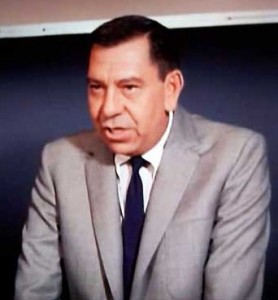 Appellate court doesn't like drug agents talking like this guy. In suppressing evidence in a drug case, the U.S. Court of Appeals for the Ninth Circuit had some harsh words for the federal drug agents who were involved. The Court also did not take kindly to the trial judge threatening to put one of the lawyers in jail for failing to answer phone calls from the court reporter about a disputed bill.
But first, the court’s indictment of Dragnet-ese. The court did not like the way the drug agents talked, as it explained in a footnote (paragraph breaks inserted):
1. The agents involved speak an almost impenetrable jargon. They do not get into their cars; they enter official government vehicles. They do not get out of or leave their cars, they exit them. They do not go somewhere; they proceed. They do not go to a particular place; they proceed to its vicinity. They do not watch or look; they surveille. They never see anything; they observe it. No one tells them anything; they are advised.
A person does not tell them his name; he identifies himself. A person does not say something; he indicates. They do not listen to a telephone conversation; they monitor it. People telephoning to each other do not say “hello;” they exchange greetings. An agent does not hand money to an informer to make a buy; he advances previously recorded official government funds.
To an agent, a list of serial numbers does not list serial numbers, it depicts Federal Reserve Notes. An agent does not say what an exhibit is; he says that it purports to be. The agents preface answers to simple and direct questions with “to my knowledge.” They cannot describe a conversation by saying “he said” and “I said;” they speak in conclusions. Sometimes it takes the combined efforts of counsel and the judge to get them to state who said what.
Under cross-examination, they seem unable to give a direct answer to a question; they either spout conclusions or do not understand. This often gives the prosecutor, under the guise of an objection, an opportunity to suggest an answer, which is then obligingly given.
As a side issue, the opinion contains a lengthy discussion of an incident in which the trial judge humiliated one of the defense lawyers in court and threatened to send him to jail for raising questions about the court reporter’s fee. The court reporter, who charged by the page, indented the text on each page so it began in the middle of the page, used only 25 lines of type per page instead of the standard 28, and used a font that was larger than normal. The lawyer tried to present an affidavit establishing that the transcript was twice as long as it needed to be, and thus twice as costly. The judge’s response? Here’s a snippet:
MR. LANGER (defense counsel): You say you spoke to me?
THE REPORTER: No. [TO JUDGE:] He wouldn’t even answer my phone calls.
MR. LANGER: Your Honor–
THE COURT: I know it. That is another thing. I ought to throw you in jail for not doing that, for not answering the phone calls of the reporter.
The Ninth Circuit disapproved of the trial judge’s conduct.
— United States v. Marshall, 488 F.2d 1169, 1171 n.1, 1200 (9th Cir. 1973). Thanks to Frank Zotter.
November 6th, 2011 There are plenty of cranky judges out there, but also some nice ones.
Have you ever noticed how nice people from Canada are? Well, it turns out that even the judges are super nice.
In National Leasing Group, Inc. v. Top West Ventures, the plaintiff sued to collect a debt and the defendant filed an intelligible counterclaim drafted by a friend consisting of 97 paragraphs and 26 pages. As you’ll read below, the Supreme Court of British Columbia could argue just cause for launching into the guy, but Master Bolton, the writing judge, responded to the bizarre pleading with kindness and an abundance of decorum. Here’s a taste of the court’s opinion:
On the face of the document, I had difficulty discerning any cause of action while the matter was being spoken to in chambers, but in view of its length and complexity, I concluded that I should reserve my decision in order to consider it in more detail. The first paragraph reads:
1. For the [DE]FENDANT with the knowledge of the David-Wynn:Miller; Language-Procedures (http://www.dwmlawprocedures.com; http://brucestellar.tsx.org) is with the damage: damage by the utilization of the fictitious-language/scribble as the foundation for the authority for the action/claim against the DE[FENDANT] damage by the criminal-rate of the interest [section: 347: Criminal-Codeof the Canada]; damage by the false-statements [section: 397.1(a); Criminal-Codeof the Canada]; damage by the completion of a fraud: constructive or actual [section: 380.1 of the Criminal Code of the Canada]; damage by the completion of a mail-fraud [section: 381 of the Criminal-Code of the Canada; damage by the bad-faith; by the PLAINTIFF and DEFENDANT by the COUNTER-CLAIM.
What did the judge have to say about this gobbledygook? With a generosity of spirit unparalleled in recorded judicial history, he said: “This is not too bad.”
However, he added that, unfortunately, he could not recognize anything “in any of its remaining 96 paragraphs.”
— Nat’l Leasing Group, Inc. v. Top West Ventures, 2001 BCSC 111 (Can.). Thanks to David Cheifetz.
November 6th, 2011 Give credit to a sneaky law clerk to U.S. Circuit Judge Reynaldo Garza, who pulled off an adventurous Syufy-like prank all the way back in 1987. (U.S. v. Syufy is the opinion where Judge Alex Kozinski slipped in more than 200 movie titles. See “Coming Soon To A Footnote Near You.”
In United States v. Abner, a law clerk wove in twenty-five references to the names of albums and songs by the rock group Talking Heads, reportedly in an unsuccessful bid to win some concert tickets. The prank escaped the notice of Judge Garza according to a source.
— United States v. Abner, 825 F.2d 835 (5th Cir. 1987).
November 6th, 2011 Of all the judicial opinions that have been reviewed at lawhaha.com, People v. Arno takes the cake for the most over-the-top, unjudicial attack on a colleague in a written opinion. For that reason, it qualifies for the Strange Judicial Opinions Hall of Fame.
Arno was a Fourth Amendment obscenity case in which the Second District California Court of Appeals suppressed evidence obtained by the police from peering in the windows of defendant’s office suite with ten-power binoculars.
One judge—we’ll leave names out to protect all the guilty judges involved—filed a strong dissent. Actually, it was more than strong. It was strident and no doubt irritating to the judge’s colleagues on the appellate panel.
But the attack launched by the majority judges against their dissenting brethren in footnote 2 is almost breathtaking in its inappropriateness. You don’t bother to read the whole footnote. Just read the first letters of the seven numbered sentences. As Country Joe McDonald shouted at Woodstock: “What’s that spell? What’s that spell?”
2. We feel compelled by the nature of the attack in the dissenting opinion to spell out a response:
1. Some answer is required to the dissent’s charge.
2. Certainly we do not endorse “victimless crime.”
3. How that question is involved escapes us.
4. Moreover, the constitutional issue is significant.
5. Ultimately it must be addressed in light of precedent.
6. Certainly the course of precedent is clear.
7. Know that, our result is compelled.
How did the dissenter reply to this profane insult? Well, not surprisingly, with even more bizarre stridency. In his own footnote, he said:
I have heretofore eschewed responding to footnote 2 of the majority opinion in kind since it would be beneath the dignity of this office. Although I still will not respond in kind, … some comment is compelled.
I decry the lack of propriety, collegiality and judicial temperament displayed in footnote 2. I abhor the loss of public respect for the legal profession and the judiciary footnote 2 engendered by reason of [a L.A. Times story about the footnote]. …
I construe the [footnote reference] as a personal affront to every California citizen and their duly elected representatives … who have deemed it a wise public policy to enact our criminal obscenity laws …. It is no wonder that California had the odious distinction of being the porno capital of the world.
Come on, judges. Play nice or we’ll take your robes away.
— People v. Arno, 153 Cal. Rptr. 624, 628 n.2 (majority), 644 n.14 (dissent) (Cal. Ct. App. 1979).
November 6th, 2011  City of Canadian v. Guthrie City of Canadian v. Guthrie is a sad, strange tale of a one-eyed horse ordered by the town mayor to be executed by one Panhandle Pete, who took the mare’s life “by shooting her between the bad eye and the one not so bad.” In an opinion that makes you wonder whether someone dosed the town’s water supply with LSD (although it wasn’t yet invented), Chief Justice Hall explained “when Panhandle Pete’s pistol popped, she petered, for which the poundkeeper paid Pete a pair of Pesos.”
The owner of the horse sued for damages, claiming she was a prize mare. The court took issue with that assertion, describing the horse as follows:
From the record, we conclude that although she may not have had a skin you would particularly love to touch (though she had seen only fourteen joyous summers), yet she had a skin which clung like ivy to her rafters with a beautiful corrugated effect upon the sides of her lithe and spirituelle form.
The horse got in trouble for wandering onto neighboring property and eating the foilage, or as Justice Hall put it (paragraph breaks inserted):
The record shows that upon at least two occasions “When night drew her sable curtain down And pinned it with a star,” and “Silence like a gentle spirit Brooded o’er a still and pulseless world,” the time lock on her corral mysteriously went off and so did she, in search of tulips, dahlias, and gladioli in the neighboring lawns and flower beds …
Although she had only one eye, appellant contends she could find more edible shrubbery in a single night than an experienced landscape gardener could replant in thirty days. We may assume that in her midnight excursions she had been thrown with porch climbers, joy riders, orchard raiders, and other nocturnal prowlers, which may account for her waywardness and utter disregard for the property rights of other. …
It was not denied that she had “went hence” and was cut down in the heyday of her young and fitful life … [because the mayor] personally ordered her gentle soul sent to the great beyond and the remainder to the municipal dump ground.
The court finally dismissed the case for lack of jurisdiction.
— City of Canadian v. Guthrie, 87 S.W.2d 316, 317–18 (Tex. Ct. App. 1932). Thanks to John R. Thomason.
November 6th, 2011 A Utah resident upset with the fact that the Murray City, Utah, city council opened its meetings with a prayer, submitted a request to open the meeting with his own prayer, a free establishment protest prayer. Here are some excerpts:
OUR MOTHER, who art in heaven (if, indeed there is a heaven and if there is a god that takes a woman’s form) hallowed be thy name, we ask for thy blessing for and guidance of those that will participate in this meeting and for those mortals that govern the state of Utah;
We fervently ask that you guide the leaders of this city … so that they may see the wisdom of separating church and state and so that they will never again perform demeaning religious ceremonies as part of official government functions;
We pray that you prevent self-righteous politicians from mis-using the name of God in conducting government meetings; and, that you lead them away from the hypocritical and blasphemous deception of the public, attempting to make the people believe that bureaucrats’ decisions and actions have thy stamp of approval if prayers are offered at the beginning of government meetings …
Not surprisingly, his request was denied. He filed suit and the trial court granted summary judgment for the city, but the Utah Supreme Court reversed, holding that the city could not discriminate against the plaintiff’s prayer just because it didn’t like the content.
— Snyder v. Murray City Corporation, 73 P.3d 325, 327 n.1 (Utah 2003). Thanks to Elise Hendrick.
November 6th, 2011 Federal Senior U.S. District Judge Kane of the District of Colorado offered curious readers of judicial opinions an excursion into the world of adult-oriented judicial opinions in Martin v. Cuny. In a case involving a copyright dispute over a photograph of a man and a woman engaging in oral sex, Judge Kane, in a footnote, provided a bibliography of judicial opinions that have titillated law students for decades:
Given its subject matter, this opinion may join certain cases with obscure citations found in well-thumbed volumes in law school libraries. These cases are favorites of second year law students imprisoned in libraries and seeking diversion from the boredom of yet another year of highly touted and low-yielding case method of instruction. Having known a law professor, now thankfully of emeritus status, who assigned students to locate these cases as an exercise in legal research, I list a few to bring them into the age of computers and political correctness through the back door.
[The list of citations is omitted. Some of the cases are gross, including the one my classmates and I all tracked down wa-aa-ay back when we were 2Ls. Lawhaha.com is much more family friendly than the Federal Supplement. At the end of the citation list, the judge said:]
If you find each of these cases you are entitled to join the law review; if your law school library doesn’t have all of them, you should transfer at once.
A professor actually assigned these cases? No surprise he was an emeritus.
— Martin v. Cuny, 887 F. Supp. 1390, 1392 n.1 (D. Colo. 1995). Thanks to Richard McKewen.
November 6th, 2011 The lawyer who sent in this opinion wrote that it will “make you pee in your pants laughing.” Maybe he was just caught up in the spirit of the opinion, which begins:
This case decides the heretofore undecided question of whether the act of defecating in one’s pants upon being informed of a pending criminal charge is a relevant fact for the jury.
That’s a heckuva way to get your reading audience’s attention. Here’s what happened:
The prosecutor elicited testimony from the arresting officer that, upon being informed he was under arrest for sexual child assault, the defendant defecated in his pants (although he denied doing so at trial). Defense counsel objected on relevancy grounds and the judge sustained the objection. The judge told the jury to disregard the comment. Oh yeah, I’m sure the jurors were able to just completely forget that little tidbit.
The defendant appealed, asserting a mistrial should have been granted. On appeal, the prosecutor argued that the defendant’s unseemly accident was admissible as an “excited utterance” under the rules of evidence.
“Excited utterance” is an exception to the rule the bars the introduction of hearsay testimony. Hearsay–that is, statements made outside of court–are, subject to many exceptions, barred because they are deemed untrustworthy. The basis for admitting an excited utterance into evidence is the belief that statements made under shock or surprise are likely to be trustworthy.
Judge Hardberger, writing for the Texas Court of Appeals, did an admirable job of fairly identifying the conflicting inferences that could be drawn from the alleged act by the defendant. After rejecting defendant’s argument that the act had no relevance, he wrote:
On the other hand, defecation in one’s pants upon arrest does not necessarily indicate guilt. Such an act could be evidence of the innocence of a man accused of a heinous crime he didn’t do … Granted, it could also be the act of a guilty person being found out. Or it could simply be the act of a man sick to his stomach.
The court determined that the trial judge’s instruction to the jury to disregard the testimony cured any possible error.
— Marles v. State, 919 S.W.2d 669, 670–71 (Tex. Crim. App. 1996). Thanks to David Keller.
November 1st, 2011  As a University of Florida alumnus and Florida Gator fan, I couldn’t help but be tickled by Wright v. State of Georgia Dep’t of Natural Resources, from the Georgia Court of Appeals. As a University of Florida alumnus and Florida Gator fan, I couldn’t help but be tickled by Wright v. State of Georgia Dep’t of Natural Resources, from the Georgia Court of Appeals.
Few college football rivalries are as intense or long-running as that between the Florida Gators and the Georgia Bulldogs. Held in Jacksonville, FL and billed as “The World’s Largest Cocktail Party,” the Florida-Georgia game is a sacred rite of autumn in the two states. The Bulldogs ruled the series for what seemed like an eternity, inflicting untold suffering on the Gator Nation courtesy of players like Herschel Walker and Lindsay Scott. Then Coach Spurrier and Company came to the rescue, winning 10 of 11 games from 1990-2001.
Which brings us to Wright, a lawsuit in which the plaintiff claimed that certain actions by the Georgia Department of Natural Resources constituted a government “taking” of some alligators that were born and raised on plaintiff’s Georgia farm.
Judge Smith, obviously a jurist with keen political sensibilities, included this footnote:
1. Several times in this opinion, we refer to “Georgia alligators.” We do so reluctantly and soley for the sake of convenience and brevity. We recognize that for literally millions of Georgians and Floridians, the term “Georgia Gators,” or any approximation thereof, is an inherently offensive oxymoron. We apologize for any pain or distress caused by this unfamiliar and unfortunate juxtaposition.
We’ll let it slide this time, Your Honor, but if you ever happen to take up a dog-bite case involving a pug-faced nonresident defendant to the south, please don’t start talking about “Florida Bulldogs.” It would be more than we could stand.
— Wright v. Georgia Dep’t of Natural Res., 562 S.E.2d 515, 517 (Ga. Ct. App. 2002). Thanks to Jessie Cranford.
October 31st, 2011  Does a court have personal jurisdiction over the Prince of Darkness? Depends where he lives. Does a court have personal jurisdiction over the Prince of Darkness? Depends where he lives.
In Mayo v. Satan and His Staff, the plaintiff filed a civil rights action alleging Satan and his employees “on numerous occasions caused plaintiff misery and unwarranted threats, against the will of plaintiff” and “placed deliberate obstacles in his path and caused plaintiff’s downfall.” Plaintiff asserted these transgressions violated his constitutional rights. He sought the court’s permission to proceed in forma pauperis.
U.S. District Judge Weber denied the application, noting several complicated legal issues the plaintiff’s lawsuit would raise (some paragraph breaks inserted):
Even if plaintiff’s complaint reveals a prima facie recital of the infringement of the civil rights of a citizen of the United States, the Court has serious doubts that the complaint reveals a cause of action upon which relief can be granted by the court.
We question whether plaintiff may obtain personal jurisdiction over the defendant in this judicial district. The complaint contains no allegation of residence in this district. While the official reports disclose no case where this defendant has appeared as defendant there is an unofficial account of a trial in New Hampshire where this defendant filed an action of mortgage foreclosure as plaintiff.
The defendant in that action was represented by the preeminent advocate of that day, and raised the defense that the plaintiff was a foreign prince with no standing to sue in an American Court. This defense was overcome by overwhelming evidence to the contrary. Whether or not this would raise an estoppel in the present case we are unable to determine at this time.
If such action were to be allowed we would also face the question of whether it may be maintained as a class action. It appears to meet the requirements of Fed.R. of Civ.P. 23 that the class is so numerous that joinder of all members is impracticable, there are questions of law and fact common to the class, and the claims of the representative party is typical of the claims of the class. We cannot now determine if the representative party will fairly protect the interests of the class.
We note that the plaintiff has failed to include with his complaint the required form of instructions for the United States Marshal for directions as to service of process.
For the foregoing reasons we must exercise our discretion to refuse the prayer of plaintiff to proceed in forma pauperis.
Hmm, that’s interesting that a plaintiff purporting to be the devil filed a mortgage foreclosure action way back in the day. Maybe that’s who’s behind the current mortgage meltdown.
— United States ex rel. Gerald Mayo v. Satan & His Staff, 54 F.R.D. 282, 283 (W.D. Pa. 1971).
October 31st, 2011
 Judge Richard Posner Friend of lawhaha.com, Lihwei Lin, has made several choice contributions to Strange Judicial Opinions, including one posing this question: What would you do if you were a judge and had to reverse a case in which your boss had sat as the presiding judge? And what if your boss was none other than the legendary Richard Posner? Here is Lihwei’s take on the situation:
Imagine yourself in this situation: You are a newly-appointed circuit judge sitting in a circuit with the likes of Frank Easterbrook, “Rick” Posner and other judicial demigods. One day, your Chief Judge, Posner, apparently runs out of things to do in between being a chief judge, mediating the Microsoft case, and writing 5000 books, and decides to make a guest appearance by special designation in a federal trial court. In that role, he makes a few clearly reversible errors in a case, Chicago School-style no less. The case has come up for review and you are the presiding judge. What would you do?
Judge Evans confronted this dilemma of judicial review in Bankcard America, Inc. v. Universal Bancard Systems, Inc., 203 F.3d 477 (7th Cir. 2000). His footnote only three sentences into the opinion leaves you with the feeling than reversing one’s own Chief Judge is a bit more delicate than reversing your typical trial court:
It is a testament to the dedication of Chief Judge Posner that he volunteer to sit in the district court and hear this case which, at the time, needed the guiding hand of a new judge. Judge Posner, of course, carries a full load of cases on this court. He also discharges a multitude of administrative duties as the circuit’s chief judge. But that’s only part of what he does. He has written more books than many people read in a lifetime. On top of all this, in his spare time he is working as a court-appointed special mediator in the government’s blockbuster antitrust suit against Microsoft. Obviously, Judge Posner has more on his plate than a long-haul trucker working an “all you can eat” buffet line. It is a tribute to Judge Posner’s talent that he handles his many roles with such vigor, brilliance, and panache.
The only thing missing is: “I’m sooooo sorry about this, Judge. Please don’t take away my parking space.”
— Bankcard America, Inc. v. Universal Bancard Sys., Inc., 203 F.3d 477, 479 n.1 (7th Cir. 2000). Thanks to Lihwei Lin.
October 31st, 2011  In Hormel Corp. v. Jim Henson Productions, Inc., Hormel sued the Muppet master for infringing the trademark of its delicious product SPAM® by naming a character in the 1996 movie, Muppet Treasure Island, “Spa’am.” The U.S. District Court for the Southern District of New York rejected Hormel’s claims and the Second Circuit affirmed. Among the highlights: In Hormel Corp. v. Jim Henson Productions, Inc., Hormel sued the Muppet master for infringing the trademark of its delicious product SPAM® by naming a character in the 1996 movie, Muppet Treasure Island, “Spa’am.” The U.S. District Court for the Southern District of New York rejected Hormel’s claims and the Second Circuit affirmed. Among the highlights:
• Hormel was worried that sales of SPAM would suffer if they were linked with Spa’am, the movie character, a wild boar puppet allegedly depicted as “evil in porcine form.” Not to worry. An expert in children’s literature persuaded the court that Spa’am, although not “classically handsome” and introduced as a threatening character at the beginning of the movie, ultimately becomes a positive character when he befriends the Muppets and helps them escape from the film’s villain, Long John Silver. Thank goodness we could find an expert in children’s literature to unravel that puzzle. Would that kind of testimony pass Daubert scrutiny?
• The court opined that Hormel should lighten up because, even though SPAM is a high-quality product, it is already the butt of jokes because of “the public’s unfounded suspicion that SPAM is the product of less than savory ingredients.” The court pointed out that in the television cartoon, Duckman, Duckman discovers the secret ingredient to SPAM as he gazes upon “Murray’s Incontinent Camel Farm.” The court also quoted a columnist who joked that SPAM contained all five major food groups: snouts, ears, feet, tails and brains. The court said that, given all the ribbing, “one might think Hormel would welcome the association with a genuine source of pork.”
• The court also rejected Hormel’s claim that Jim Henson Productions’ merchandising of the Spa’am character would interfere with Hormel’s own merchandising of SPAM, including its character, “SPAM-man,” a giant can of SPAM with arms and legs.
Hormel lost the case, but may have had the last laugh. It has sold more than five billion cans of SPAM . SPAM is eaten in 30 percent of American homes. I probably ate a thousand fried SPAM sandwiches when I was a kid, although I try not to think about it.
— Hormel Foods Corp. v. Jim Henson Prods., Inc., 73 F.3d 497, 501–02 (2d Cir. 1996). Thanks to Lihwei Lin.
October 31st, 2011 Anyone who has ever worked as a staff attorney or law clerk to a federal judge or magistrate knows all too well the burdens of dealing with pro se inmate complaints (prisoners representing themselves).
In Washington v. Alaimo, the pro se inmate plaintiff pushed his luck too far when he filed a “Motion to Kiss My Ass,” in which he moved “all Americans at large and [the judge in one of his cases] to kiss my got [sic] damn ass.”
Other motions filed by the inmate included:
“Motion to Behoove an Inquisition”
“Motion for Restoration of Sanity”
“Motion for Publicity”
“Motion for Psychoanalysis”
“Motion to Invoke and Execute Rule 15—Retroactive Note: The Court’s School Days are Over”
“Motion for Skin Change Operation”
“Motion for Catered Food Service”
The court imposed restrictions on all future filings by the inmate.
— Washington v. Alaimo, 934 F. Supp. 1395 (S.D. Ga. 1996). Thanks to Lihwei Lin.
October 31st, 2011 Six degrees of separation? Forget about it.
In Wheat v. Fraker (Ga. App. 1963), there weren’t any. The plaintiff, Doug Fraker, sued the defendant, Judd Wheat, for damages arising from an automobile collision. The jury returned a verdict for plaintiff and the defendant appealed on the ground that (pay attention because this gets complicated) the wife of the foreman of the jury was the first cousin to the plaintiff’s wife. But wait, she was also the second cousin of the defendant! How could any judge pass up the opportunity to have fun with this family affair? Here are excerpts from the poetic opinion:
“Foul, foul play,” the defendant cried.
“That I by kinsman be not trammeled
Let the issue again be tried
Before another jury impanelled.”
…
“With juror mine adversary durst
Try the cause, whose wife is second cousin to my wife
And to plaintiff’s wife a first.
A new trial, sire, I demand to settle strife.”
“No foul play do I find or see,”
The judge replied. “Foreman’s wife to thine
And to plaintiff’s wife may kinsman be,
but to Doug and thee no kinship do I find.
“Thus, it doth not appear
For any cause or reason told
That the juror was not thy peer
The case to try and verdict mold.”
“Moreover, when kinships we sought to learn
It doth not appear that as best befits
One who would a kinsman spurn
Thou revealed that cousin did on the panel sit.”
…
— Wheat v. Fraker, 130 S.E.2d 251, 252 (Ga. Ct. App. 1963). Thanks to Senior District Judge James Barlow, San Antonio, TX.
October 31st, 2011  The intersection of church and tort law is an interesting area. For the most part, courts–wisely so–have been reluctant to entangle tort law with church and religion except in cases of intentional physical batteries. In Bass v. Aetna Ins. Co., the court had to decide whether “trotting under the Spirit of the Lord” in church, with the result of running into and injuring the plaintiff, was actionable or a protected “Act of God.” The intersection of church and tort law is an interesting area. For the most part, courts–wisely so–have been reluctant to entangle tort law with church and religion except in cases of intentional physical batteries. In Bass v. Aetna Ins. Co., the court had to decide whether “trotting under the Spirit of the Lord” in church, with the result of running into and injuring the plaintiff, was actionable or a protected “Act of God.”
Plaintiff attended the Shepard’s Fold Church in Louisiana, where moving or running in the aisles “in the Spirit” apparently is a common practice. During a revival, a fellow worshiper ran down the aisle where plaintiff was kneeling and praying and knocked her down, causing injury. Plaintiff sued for negligence.
At trial, the defendant testified he was “‘trotting’ under the Spirit of the Lord” and was not in control of his actions at the time of the collision. He raised “Act of God” as a defense and also asserted the plaintiff assumed the risk of the collision and was contributorily negligent. For non-legals, an Act of God under law is a harm-causing force of nature, such as a tornado or flood, the consequences of which humans generally are not held responsible for.
The trial court dismissed the case, finding that the plaintiff assumed the risk of the collision by praying in the aisle with her eyes closed, a decision affirmed by the court of appeals. But the Louisiana Supreme Court reversed.
The West headnote writers summed up the holdings succinctly:
[1] Negligence: Notwithstanding that worshiper testified he was trotting under the Spirit of the Lord, “Act of God” defense did not apply in action by worshiper who was injured while praying in the aisle against second worshiper who was running in church inasmuch as “Act of God” meant force majeure.
[14] Religious Societies: It is not contributory negligence to bow one’s head while praying in church, whether in the pew or in the aisle.
— Bass v. Aetna Ins. Co., 370 So. 2d 511 (La. 1979). Thanks to a fellow Torts professor.
October 31st, 2011 In Searight v. New Jersey, the plaintiff sued the State of New Jersey alleging that the state unlawfully injected him in the left eye with a radium electric beam. As a result, he asserted that someone began talking to him inside his brain.
The court rejected the claim as time-barred by the statute of limitations, but also observed that proper jurisdiction for unlicensed radio communications would lie with the FCC. The court also offered plaintiff a terribly insensitive self-help suggestion. Here’s an excerpt from the opinion:
The allegations, of course, are of facts which, if they exist, are not yet known to man. Just as Mr. Houdini has so far failed to establish communication from the spirit world …, so the decades of scientific experiments and statistical analysis have failed to establish the existence of ‘extrasensory perception’ (ESP). But, taking the facts as pleaded, and assuming them to be true, they show a case of presumably unlicensed radio communication, a matter which comes within the sole jurisdiction of the Federal Communications Commission, 47 U.S.C. § 151, et seq.
And even aside from that, Searight could have blocked the broadcast to the antenna in his brain simply by grounding it. See, for example, Ghirardi, Modern Radio Servicing, First Edition, p. 572, ff. (Radio & Technical Publishing Co., New York, 1935). Just as delivery trucks for oil and gasoline are ‘grounded’ against the accumulation of charges of static electricity, so on the same principle Searight might have pinned to the back of a trouser leg a short chain of paper clips so that the end would touch the ground and prevent anyone from talking to him inside his brain.
Sounds like poor Searight was suffering from schizophrenia. Schizophrenia is a cruel neurological brain disorder that affects 2.2 million Americans. Lawhaha.com is a fan of judicial humor, but this one never should have seen the light of day. Many of the most unusual and sometimes amusing judicial opinions occur because of the unusual or weird parties involved. But this court went out of its way to humuliate Searight. In fairness, it was 1976. Society has much more awareness of and sensitivity to mental illness, although we still have a long way to go. Schizophrenia.com is a good source info about the condition suffered by people like Searight.
— Searight v. New Jersey, 412 F. Supp. 413, 414–15 (D.N.J. 1976). Thanks to Lihwei Lin.
October 31st, 2011 The Kansas Supreme Court publicly censured a rhyming judge in a 1975 case for a tasteless piece of doggerel in which he publicly humiliated a woman arrested for prostitution. His poetic order was deemed to be in violation of the judicial ethical canon that “[a] judge should be patient, dignified, and courteous to litigants, jurors, witnesses, lawyers, and others with whom he deals in his official capacity.”
We won’t perpetuate the misdeed by setting forth the offending rhyme here. Suffice it to say the judge repeatedly called the young woman a “whore” (in addition to showing bad judgment, he should be chastised for being a lousy poet; that’s what he came up with to rhyme with “1974” — the year of defendant’s arrest).
The most interesting aspect of the case was the Kansas Supreme Court’s commentary on judicial humor. In defense to the disciplinary proceeding, the censured jurist cited to several poetic judicial opinions and argued he should not be censured for following in this grand judicial tradition. The court observed:
Judges have long been enjoined from the use of humor at the expense of the litigants before them for reasons which should be apparent. Under the heading of “Ancient Precedents” in the canons of judicial ethics adopted in 1924 by the American Bar Association this appears:
“Judges ought to be more learned than witty; more reverend than plausible; and more advised than confident. Above all things, integrity is their portion and proper virtue ….”
“Patience and gravity of hearing is an essential part of justice; and an over speaking judge is no well-tuned cymbal ….” — Bacon’s Essay “of Judicature.” (198 Kan. xi.)
In 1967 a long time member of the supreme court of Arkansas in advising new judges on opinion writing had more to say on the subject. We quote:
“. . . Judicial humor is neither judicial nor humorous. A lawsuit is a serious matter to those concerned in it. For a judge to take advantage of his criticism-insulated, retaliation-proof position to display his wit is contemptible, like hitting a man when he’s down.” (Smith, A Primer of Opinion Writing, For Four New Judges, 21 Ark. L. Rev. 197, 210.)
Judges simply should not ‘wisecrack’ at the expense of anyone connected with a judicial proceeding who is not in a position to reply. … Nor should a judge do anything to exalt himself above anyone appearing as a litigant before him. Because of his unusual role a judge should be objective in his task and mindful that the damaging effect of his improprieties may be out of proportion to their actual seriousness. He is expected to act in a manner inspiring confidence that even-handed treatment is afforded to everyone coming into contact with the judicial system.
— In re Rome, 542 P.2d 676, 685 (Kan. 1975). Thanks to Lihwei Lin.
October 31st, 2011 Before his flame-out, Judge Samuel Kent in Galveston, Texas, garnered a lot of attention for his abrasive writing style. Opinion was split in the legal community. Examples are here, here, here and here.
Some lawyers considered his sarcastic, often rude and insulting opinions hilarious. Some considered them very unjudicial and inappropriate. Probably many others viewed them as a combination of both.
Professor Steven Lubet of Northwestern University law school weighed in on the issue with a piece called “Bullying from the Bench,” in The Green Bag. Steve took issue with Kent’s humor, particularly his ad hominem attacks on lawyers. Here’s a brief excerpt:
Federal judges exercise enormous power over lawyers and their clients. Armed with life tenure and broad discretion, a judge can do great damage to an attorney’s reputation and career, while the lawyer has almost no recourse. So when Judge Kent decided to torment the hapless counsel in the Bradshaw case are identified by name in the published opinion—he was taking aim at people who could not defend themselves. …
In litigation, the judge is the maximum boss. Everyone else is a supplicant, compelled to engage in stylized demonstrations of obedience. We stand when the judge enters and leaves the room. Our “pleadings” are “respectfully submitted.” Before speaking, we make sure that it “pleases the court.” We obey the judge’s orders and we even say “thank you” for adverse rulings. …
By belittling the lawyers who appear before him, Judge Kent used his authority to humiliate people who—in the courtroom environment—are comparatively helpless. There is a name for that sort of behavior, and it isn’t adjudication. It’s bullying.
Steven got it right, of course. The relationship between judge and lawyers is about as one-sided as it gets. The judge holds all the cards. Sometimes lawyers deserve to get chewed out, but Kent was over the top.
— Steven Lubet, Bullying from the Bench, 5 Green Bag 2d 11, 12 (2001).
October 31st, 2011 With several rhyming judges having fun with people’s cases, one must wonder what the judges would do if the shoe was on the other foot–if lawyers submitted rhyming court documents in a case, perhaps a poetic brief. Now we know! Well, at least with regard to one tolerant judge.
In Mackensworth v. American Trading Transportation Co., a judge responded as a good sport to some poetic pleadings submitted by counsel. For reasons unknown, the plaintiff’s lawyer submitted a poetic reply brief, stirring defense counsel to reply poetically as well.
U.S. District Judge Edward R. Becker decided to be a good sport and join in the fun. Although not set out in this excerpt, the West headnote writers once again had a good rhyme time with the case. Here are some excerpts from Judge Becker’s order:
The motion now before us has stirred up a terrible fuss.
And what is considerably worse, it has spawned some preposterous doggerel verse.
The plaintiff, a man of the sea,
after paying his lawyer a fee,
filed a complaint of several pages to recover statutory wages.
The pleaded facts remind us of a tale that is endless.
A seaman whom for centuries the law has called “friendless”
is discharged from the ship before voyage’s end
and sues for lost wages, his finances to mend.
***
Plaintiff’s counsel, whose name is Harry Lore,
read defendant’s brief and found it a bore.
Instead of a reply brief, he acted pretty quick
and responded with a clever limerick:
“Admiralty process is hoary
With pleadings that tell a sad story
Of Libels in Rem-
The bane of sea-faring men
The moral:
Better personally served than be sorry.”
Not to be outdone, the defense took the time
to reply with their own clever rhyme.
The defense counsel team of Mahoney, Roberts, & Smith
drafted a poem cutting right to the pith:
“Admiralty lawyers like Harry
Both current and those known from lore
Be they straight types, mixed or fairy
Must learn how to sidestep our bore.
For Smith, not known for his mirth
With his knife out for Mackensworth
With Writs, papers or Motions to Quash
Knows that dear Harry’s position don’t wash.”
Overwhelmed by this outburst of pure creativity,
we determined to show an equal proclivity.
Hence this opinion in the form of verse,
even if not of the calibre of Saint-John Perse.
[Court proceeds to wax poetic about long arm jurisdiction, concluding with:]
Finding that service of process is bona fide,
the motion to dismiss is hereby denied.
So that this case can now get about its ways,
defendant shall file an answer within 21 days.
— Mackensworth v. Am. Trading Transp. Co., 367 F. Supp. 373, 374–75, 377 (E.D. Pa. 1973). Thanks to Lihwei Lin.
October 31st, 2011 It must have been a slow day in the bankruptcy courts of South Florida when Judge A. Jay Cristol took pen in hand to address the case of In re Love. The West headnote at the end is funny. But first, Judge Cristol’s take on Edgar Allan Poe’s haunting poem, The Raven, as applied to bankruptcy law:
Once upon a midnight dreary, while I pondered weak and weary
Over many quaint and curious files of chapter seven lore
While I nodded nearly napping, suddenly there came a tapping
As of some one gently rapping, rapping at my chamber door,
“Tis some debtor” I muttered, “tapping at my chamber door—
Only this and nothing more.”
Ah distinctly I recall, it was in the early fall
And the file still was small
The Code provided I could use it
If someone tried to substantially abuse it
No party asked that it be heard.
“Sua sponte” whispered a small black bird.
The bird himself, my only maven, strongly looked to be a raven.
Upon the words the bird had uttered
I gazed at all the files cluttered
“Sua sponte,” I recall, had no meaning; none at all.
And the cluttered files sprawl, drove a thought into my brain.
Eagerly I wished the morrow—vainly I had sought to borrow
From BAFJA, surcease of sorrow—
and an order quick and plain
That this case would not remain
as a source of further pain.
The procedure, it seemed plain.
As the case grew older, I perceived I must be bolder.
And must sua sponte act, to determine every fact,
If primarily consumer debts, are faced,
Perhaps this case is wrongly placed.
This is a thought that I must face, perhaps
I should dismiss this case.
I moved sua sponte to dismiss it
for I knew I would not miss it
The Code said I could, I knew it.
But not exactly how to do it, or perhaps some day I’d rue it.
I leaped up and struck my gavel.
For the mystery to unravel
Could I? Should I? Sua sponte, grant my motion to dismiss? While it seemed the thing to do, suddenly I thought of this.
Looking, looking towards the future and to what there was to see
If my motion, it was granted and an appeal came to be,
Who would be the appellee?
Surely, it would not be me.
Who would file, but pray tell me,
a learned brief for the appellee
The District Judge would not do so
At least this much I do know.
Tell me raven, how to go.
As I with the ruling wrestled
In the statute I saw nestled
A presumption with a flavor clearly in the debtor’s favor.
No evidence had I taken
Sua sponte appeared foresaken.
Now my motion caused me terror
A dismissal would be error.
Upon consideration of § 707(b), in anguish, loud I cried
The court’s sua sponte motion to dismiss under 707(b) is denied.
Give credit to the headnote writers at West. The job must be pretty boring, but they never miss a chance to spice it up a bit. Here’s the West Reporter headnote for the case:
Bankruptcy 48
Sua sponte dismissal would be error,
Though authority in Code is there,
To eschew abuse of consumer debt,
As presumption for debtor must be met.
— In re Love, 61 B.R. 558, 558–559 (Bankr. S.D. Fla. 1986). Thanks to Professor Glenn E. Pasvogel.
October 31st, 2011 Pennsylvania Judge Mike Eakin is a poetic soul who specializes in opinions that rhyme.
In Zangrando v. Sipula, Zangrando was walking her miniature poodles, Angel and Autumn, when Sipula struck one of the dogs with his car. Zangrando sued Sipula for payment of the vet bills. Here’s a short excerpt from Judge Eakin’s rhyming decision, affirming the trial court’s award of damages:
The car was coming much too close, something inside told her; the next thing Mrs. Zangrando knew, a poodle flew over her shoulder.
To appellee this was nothing short of an unmitigated disaster; the wingless Angel’d taken flight and ascended quickly past her.
In this brace of miniature poodles, neither one wide nor tall; one may have been named Autumn, but t’was Angel took the fall.
Don’t worry. Poor little Angel recovered from her injuries. A fundamental rule of writing rhyming judicial opinions—of which there are many in the annals of law—is that the injury be slight. The opinion wouldn’t be as amusing if it rhymed: “When the doggie got squashed under the SUV’s wheels; it put a quick end to his plaintive squeals.”
— Zangrando v. Sipula, 756 A.2d 73, 75 (Pa. Super. Ct. 2000). Thanks to Professor Coleen Barger.
October 31st, 2011 Here are a couple more rhyming opinions from Pennsylvania Judge Mike Eakin:
In Busch v. Busch, he upheld a pre-nuptial agreement with the observation, “They wanted to marry, their lives to enhance, not for the dollars—it was for the romance. When they said, ‘I do,’ had their wedding day kiss, it was not about money—only marital bliss.”
In Liddle v. Scholze, he rejected a contract claim by a buyer of emus (Liddle) against the seller (Scholze) after the emus (Nicholas and Savannah) failed to propogate. He blamed the emus: “The fault’s the emus’, not that of Liddle, or Scholze, or the court placed in the middle. Fruitless in Pennsylvania and Louisiana, the blame’s on Nicholas and Savannah.”
— Busch v. Busch, 732 A.2d 1274, 1278 (Pa. Super. Ct. 1999); Liddle v. Scholze, 768 A.2d 1183, 1186 (Pa. Super. Ct. 2001).
October 31st, 2011 Another ad hominem-laced love letter to lawyers from former U.S. District Judge Samuel Kent, Galveston, TX. This one was a maritime personal injury case in which defense counsel moved for summary judgment on behalf of his client Phillips Petroleum.
Note that, in insulting the lawyers throughout, Judge Kent emphasized that the lawyers for both sides were “likeable” and that he had “affection” for them:
[Judge Kent begins the order by stating the case, then proceeds as follows.]
[T]he Court notes that this case involves two extremely likable lawyers, who have together delivered some of the most amateurish pleadings ever to cross the hallowed causeway into Galveston, an effort which leads the Court to surmise but one plausible explanation. Both attorneys have obviously entered into a secret pact—complete with hats, handshakes and cryptic words—to draft their pleadings entirely in crayon on the back sides of gravy-stained paper place mats, in the hope that the Court would be so charmed by their child-like efforts that their utter dearth of legal authorities in their briefing would go unnoticed.
Whatever actually occurred, the Court is now faced with the daunting task of deciphering their submissions. With Big Chief tablet readied, thick black pencil in hand, and a devil-may-care laugh in the face of death, life on the razor’s edge sense of exhilaration, the Court begins.
[The court discusses summary judgment law, followed by several caustic remarks about the quality of defense counsel’s (representing Phillips) filings, including the statement that “[a] more bumbling approach is difficult to conceive.” Then the court tears into plaintiff’s counsel.]
Plaintiff responds to this deft, yet minimalist analytical wizardry with an equally gossamer wisp of an argument, although Plaintiff does at least cite the federal limitations provision applicable to maritime tort claims. … Naturally, Plaintiff also neglects to provide any analysis whatsoever of why his claim versus Defendant Phillips is a maritime action. Instead, Plaintiff “cites” to a single case from the Fourth Circuit.
Plaintiff’s citation, however, points to a nonexistent Volume “1886” of the Federal Reporter Third Edition and neglects to provide a pinpoint citation for what, after being located, turned out to be a forty-page decision. Ultimately, to the Court’s dismay after reviewing the opinion, it stands simply for the bombshell proposition that torts committed on navigable waters … require the application of general maritime rather than state tort law … The Court cannot even begin to comprehend why this case was selected for reference. It is almost as if Plaintiff’s counsel chose the opinion by throwing long range darts at the Federal Reporter (remarkably enough hitting a nonexistent volume!). …
Despite the continued shortcomings of Plaintiff’s supplemental submission, the Court commends Plaintiff for his vastly improved choice of crayon—Brick Red is much easier on the eyes than Goldenrod, and stands out much better amidst the mustard splotched about Plaintiff’s briefing. But at the end of the day, even if you put a calico dress on it and call it Florence, a pig is still a pig. Now, alas, the Court must return to grownup land. [Court resolves issue on its own.] …
Take heed and be suitably awed, oh boys and girls—the Court was able to state the issue and its resolution in one paragraph … despite dozens of pages of gibberish from the parties to the contrary! …
After this remarkably long walk on a short legal pier, having received no useful guidance whatever from either party, the Court has endeavored, primarily based upon its affection for both counsel, but also out of its own sense of morbid curiosity, to resolve what it perceived to be the legal issue presented. Despite the waste of perfectly good crayon seen in both parties’ briefing … the Court believes it has satisfactorily resolved this matter. Defendant’s Motion for Summary Judgment is GRANTED …
— Bradshaw v. Unity Marine Corp., 147 F. Supp. 2d 668, 670–72 (S.D. Tex. 2001). Thanks to Ira Rosenau.
October 31st, 2011 Some believe the writings of impeached U.S. District Judge Samuel B. Kent, Southern District of Texas, are quite funny, but probably not many lawyers in Galveston were laughing after his June 2001 order on a motion to transfer for improper venue. Being Juge Kent, he couldn’t just deny the motion. He had to rip apart the lawyer who filed the motion:
[A]ny person with even a correspondence-course level understanding of federal practice and procedure would recognize that Defendant’s Motion is patently insipid, ludicrous and utterly unequivocally without any merit whatsoever. Worse, it is just plain blatantly wrong in light of the unambiguous language of a decades old federal statute and veritable mountains of case law addressing venue propriety.
Sound bad? It gets worse. Judge Kent went on to state that “Defendant’s obnoxiously ancient, boilerplate, inane Motion is emphatically DENIED.”
For the coup de grace, Judge Kent ended by disqualifying the lawyer from further appearing in the case “for submitting this asinine tripe.”
— Labor Force, Inc. v. Jacintoport Corp., 144 F. Supp. 2d 740 (S.D. Tex. 2001) (opinion subsequently withdrawn from bound volume).
October 31st, 2011 Here’s another widely circulated sarcastic opinion from former U.S. District Judge Samuel Kent, Galveston, Texas. Say what you want about Kent, and there is plenty to say, he was a clever writer. And who else could insult six entire nations in a single paragraph (the first one below)?
The governments of several foreign countries sued American tobacco companies for health care costs allegedly caused by the defendants’ product. Judge Kent, in his inimitable way, sua sponte transferred the case to the District of Columbia:
The governments of Guatemala, Panama, Nicaragua, Thailand, Venezuela, and Bolivia have filed suit in [several geographically diverse locales in the U.S.] Why none of these countries seems to have a court system their own governments have confidence in is a mystery to this Court. Moreover, given the tremendous number of United States jurisdictions encompassing fascinating and exotic places, the Court can hardly imagine why the Republic of Bolivia elected to file suit in the veritable hinterlands of Brazoria County, Texas. The Court seriously doubts whether Brazoria County has ever seen a live Bolivian … even on the Discovery Channel.
Though only here by removal, this humble Court by the sea is certainly flattered by what must be the worldwide renown of rural Texas courts for dispensing justice with unparalleled fairness and alacrity, apparently in common discussion even on the mountain peaks of Bolivia! Still, the Court would be remiss in accepting an obligation for which it truly does not have the necessary resources …
[T]he capacity of this Court to address the complex and sophisticated issues of international law and foreign relations presented by this case is dwarfed by that of its esteemed colleagues in the District of Columbia who deftly address such awesome tasks as a matter of course. … Such a Bench, well-populated with genuinely renowned intellects, can certainly better bear and share the burden of multidistrict litigation than this single judge division, where the judge moves his lips when he reads ….
[I]t is the Court’s opinion that the District of Columbia, located in this Nation’s capital, is a much more logical venue for the parties and witnesses in this action because, among other things, Plaintiff has an embassy in Washington, D.C., and thus a physical presence and governmental representatives there, whereas there isn’t even a Bolivian restaurant anywhere near here! Although the jurisdiction of this Court boasts no similar foreign offices, a somewhat dated globe is within its possession.
While the Court does not therefrom profess to understand all of the political subtleties of the geographical transmogrifications ongoing in Eastern Europe, the Court is virtually certain that Bolivia is not within the four counties over which this Court presides, even though the words Bolivia and Brazoria are a lot alike and caused some real, initial confusion until the Court conferred with its law clerks. Thus, it is readily apparent, even from an outdated globe such as that possessed by this Court, that Bolivia, a hemisphere away, ain’t in south-central Texas, and that, at the very least, the District of Columbia is a more appropriate venue (though Bolivia isn’t located there either).
Furthermore, as this Judicial District bears no significant relationship to any of the matters at issue, and the judge of this Court simply loves cigars, the Plaintiff can be expected to suffer neither harm nor prejudice by a transfer to Washington, D.C., a Bench better able to rise to the smoky challenges presented by this case, despite the alleged and historic presence there of countless “smoke-filled” rooms.
— Republic of Bolivia v. Philip Morris Cos., 39 F. Supp. 2d 1008, 1009–10 (S.D. Tex. 1999). Thanks to Bob Van Voris.
October 31st, 2011 The notorious Judge Samuel Kent, former U.S. District Judge for the Southern District of Texas, made his first big spash on the Strange Judicial Opinions screen in a 1996 case called Smith v. Colonial Penn Ins. Co.
A defendant in a breach of contract case in Galveston apparently insulted Judge Kent’s hometown and Southern pride when it filed a motion to transfer venue in the case from Galveston to Houston based on forum non conveniens. Defendant’s motion said Galveston did not have a commercial airport into which defendant’s agents could fly. The nearest airport was Houston’s Hobby Airport, 40 miles away.
Judge Kent was somethingless than sympathetic to defendant’s plight. He sarcastically skewered the lawyers (some paragraph breaks inserted):
Defendant should be assured that it is not embarking on a three-week-long trip via covered wagons when it travels to Galveston. Rather, Defendant will be pleased to discover that the highway is paved and lighted all the way to Galveston, and thanks to the efforts of this Court’s predecessor, Judge Roy Bean, the trip should be free of rustlers, hooligans, or vicious varmints of unsavory kind. Moreover, the speed limit was recently increased to seventy miles per hour on most of the road leading to Galveston, so Defendant should be able to hurtle to justice at lightning speed.
To assuage Defendant’s worries about the inconvenience of the drive, the Court notes that Houston’s Hobby Airport is located about equal drivetime from downtown Houston and the Galveston courthouse. Defendant will likely find it an easy, traffic-free ride to Galveston as compared to a congested, construction-riddled drive to downtown Houston. The Court notes that any inconvenience suffered in having to drive to Galveston may likely be offset by the peacefulness of the ride and the scenic beauty of the sunny isle.
As to Defendant’s argument that Houston might also be a more convenient forum for Plaintiff, the Court notes that Plaintiff picked Galveston as her forum of choice even though she resides in San Antonio. Defendant argues that flight travel is available between Houston and San Antonio but is not available between Galveston and San Antonio, again because of the absence of a commercial airport. Alas, this Court’s kingdom for a commercial airport! [Fn]
[Fn.] Defendant will again be pleased to know that regular limousine service is available from Hobby Airport, even to the steps of this humble courthouse, which has got lights, indoor plummin’, ‘lectric doors, and all sorts of new stuff, almost like them big courthouses back East.
The Court is unpersuaded by this argument because it is not this Court’s concern how Plaintiff gets here, whether it be by plane, train, automobile, horseback, foot, or on the back of a huge Texas jackrabbit, as long as Plaintiff is here at the proper date and time. Thus, the Court declines to disturb the forum chosen by the Plaintiff and introduce the likelihood of delay inherent in any transfer simply to avoid the insignificant inconvenience that Defendant may suffer by litigating this matter in Galveston rather than Houston.
And that’s how Lawhaha.com first met Judge Kent.
— Smith v. Colonial Penn Ins. Co., 943 F. Supp. 782, 784–85 (S.D. Tex. 1996).
October 25th, 2011 In Fisher v. Lowe, the plaintiff sued defendant for driving his automobile into plaintiff’s oak tree, damaging the tree. The Michigan trial court ruled in favor of the defendant and the Court of Appeals affirmed. Here is the court’s actual opinion:
We thought that we would never see
A suit to compensate a tree.
A suit whose claim in tort is prest
Upon a mangled tree’s behest;
A tree whose battered trunk was prest
Against a Chevy’s crumpled crest;
A tree that faces each new day
With bark and limb in disarray;
A tree that may forever bear
A lasting need for tender care.
Flora lovers though we three,
We must uphold the court’s decree.
Affirmed.
The court’s opinion prompted the usually staid headnote writers at West Publishing Co. to take their own poetic license. This one’s worth checking out in full.
— Fisher v. Lowe, 333 N.W.2d 67, 67 (Mich. Ct. App. 1983).
October 15th, 2011  Poopi the poodle and her owners sued their veterinarian after Poopi underwent anesthesia for teeth cleaning and woke up with a three-inch scar on her abdomen. The vet mistakenly tried to spay Poopi, even though she had already been spayed as a puppy. Poopi the poodle and her owners sued their veterinarian after Poopi underwent anesthesia for teeth cleaning and woke up with a three-inch scar on her abdomen. The vet mistakenly tried to spay Poopi, even though she had already been spayed as a puppy.
Poopi’s owners sought emotional distress damages for themselves as well as for Poopi, including expenses for Poopi’s psychological care. Plaintiffs conceded that under Ohio law dogs are considered to be personal property, but argued that the court should “do the right thing” by distinguishing pets from inanimate objects. They quoted from a law review article that equated the death of a “companion animal” to “the wrongful killing of any other family member.”
The Ohio Court of Appeals affirmed the trial judge, which had rejected the claim, although one member of the appellate panel concurred “reluctantly” and suggested that the legislature consider allowing damages for tortious injuries to pets.
Now that the suit has been wrapped up, perhaps Poopi should consult independent counsel about the possibility of pursuing emotional distress of having to go through life named “Poopi.”
— Oberschlake v. Veterinary Assoc. Animal Hosp., 785 N.E.2d 811 (Ohio Ct. App. 2003).
October 12th, 2011 Strange Judicial Opinions is dedicated to those robed raconteurs, rascals and renegades who brighten up the lives of lawyers and law students everywhere by daring to be different.
A legitimate debate exists as to whether it is appropriate for judges to use their written opinions and orders as vehicles for personal creative expression, including humor. Needless to say, at Lawhaha.com, we favor such efforts when they are clever, intelligent, cute, or just plain weird, and don’t unnecessarily demean lawyers or parties.
Even the soberest of judges can’t help writing amusing opinions and orders in cases involving odd facts, issues or parties. When, for example, a judge has an ex parte communication with a talking cat, is required to address lawsuits against God or Satan or respond to a plaintiff claiming to be a Martian, it’s not easy to retain the solemn tone that is the norm for legal proceedings.
Strange Judicial Opinions collects a variety of amusing or otherwise unusual judicial writings in the categories below. Enjoy!
|
Funny Law School Stories
For all its terror and tedium, law school can be a hilarious place. Everyone has a funny law school story. What’s your story?
|
Product Warning Labels
A variety of warning labels, some good, some silly and some just really odd. If you come encounter a funny or interesting product warning label, please send it along.
|
Tortland

Tortland collects interesting tort cases, warning labels, and photos of potential torts. Raise risk awareness. Play "Spot the Tort." |
Weird Patents
Think it’s really hard to get a patent? Think again.
|
Legal Oddities
From the simply curious to the downright bizarre, a collection of amusing law-related artifacts.
|
Spot the Tort
Have fun and make the world a safer place. Send in pictures of dangerous conditions you stumble upon (figuratively only, we hope) out there in Tortland.
|
Legal Education
Collecting any and all amusing tidbits related to legal education.
|
Harmless Error
McClurg's twisted legal humor column ran for more than four years
in the American Bar Association Journal.
|
|
|


















